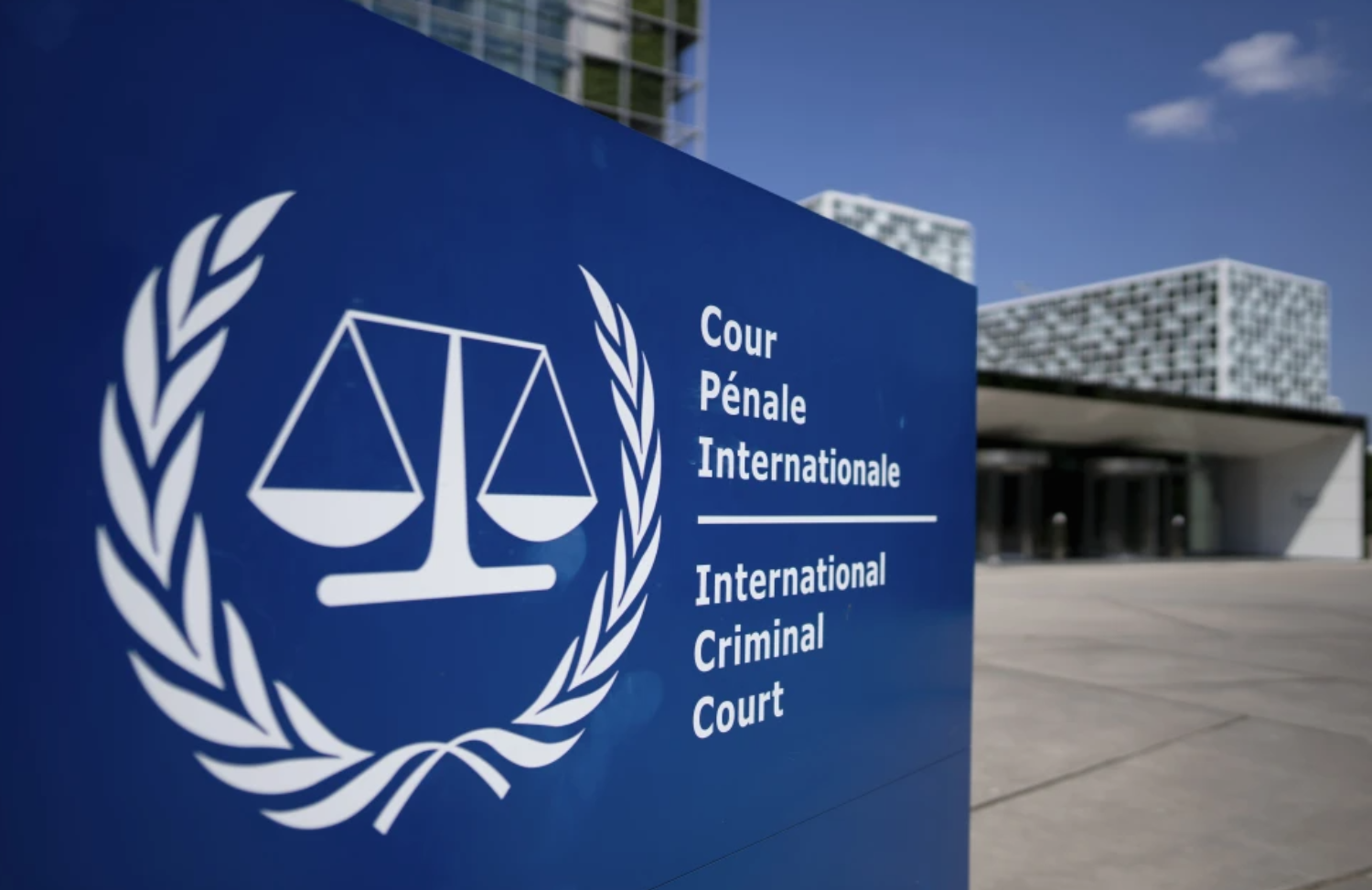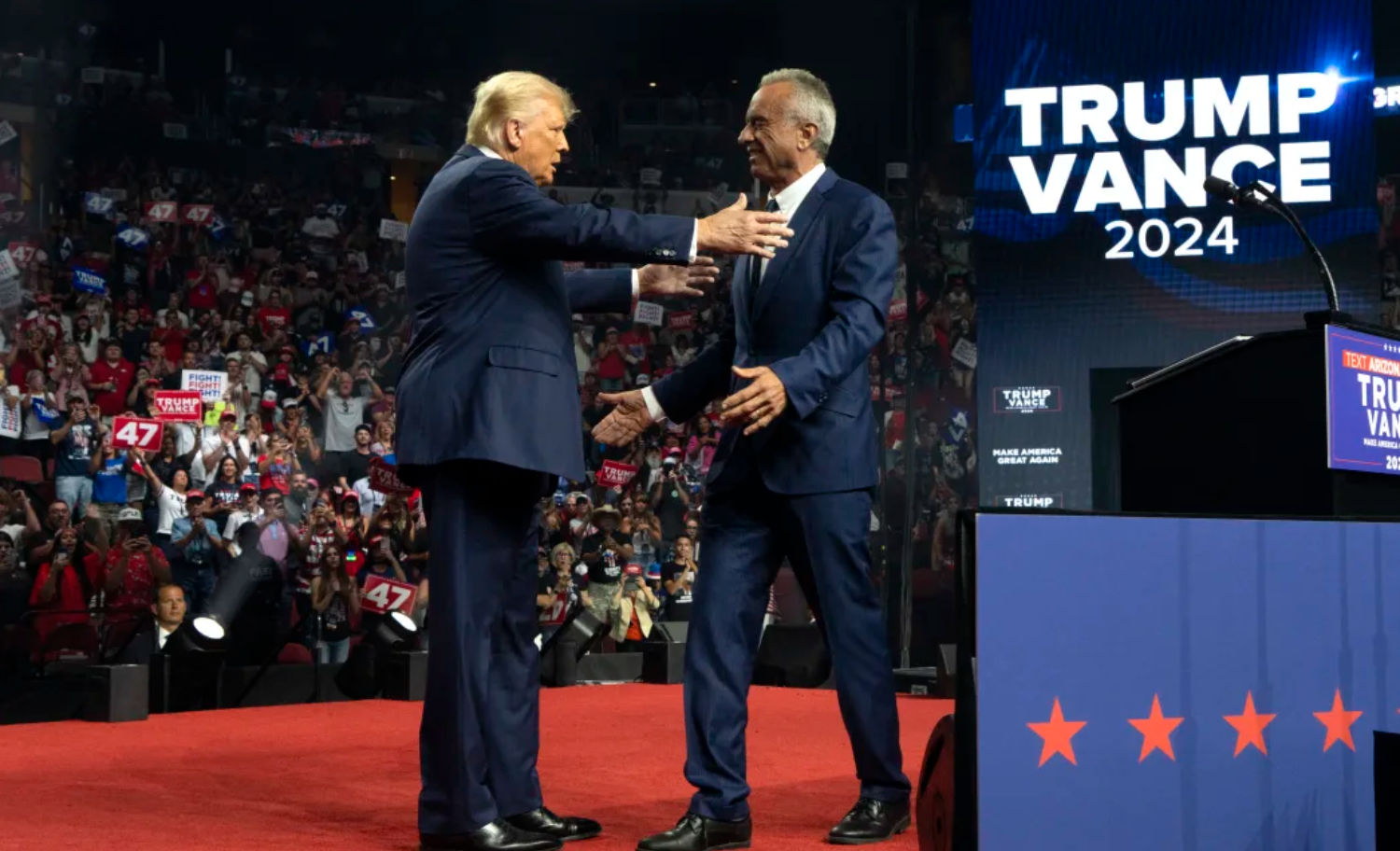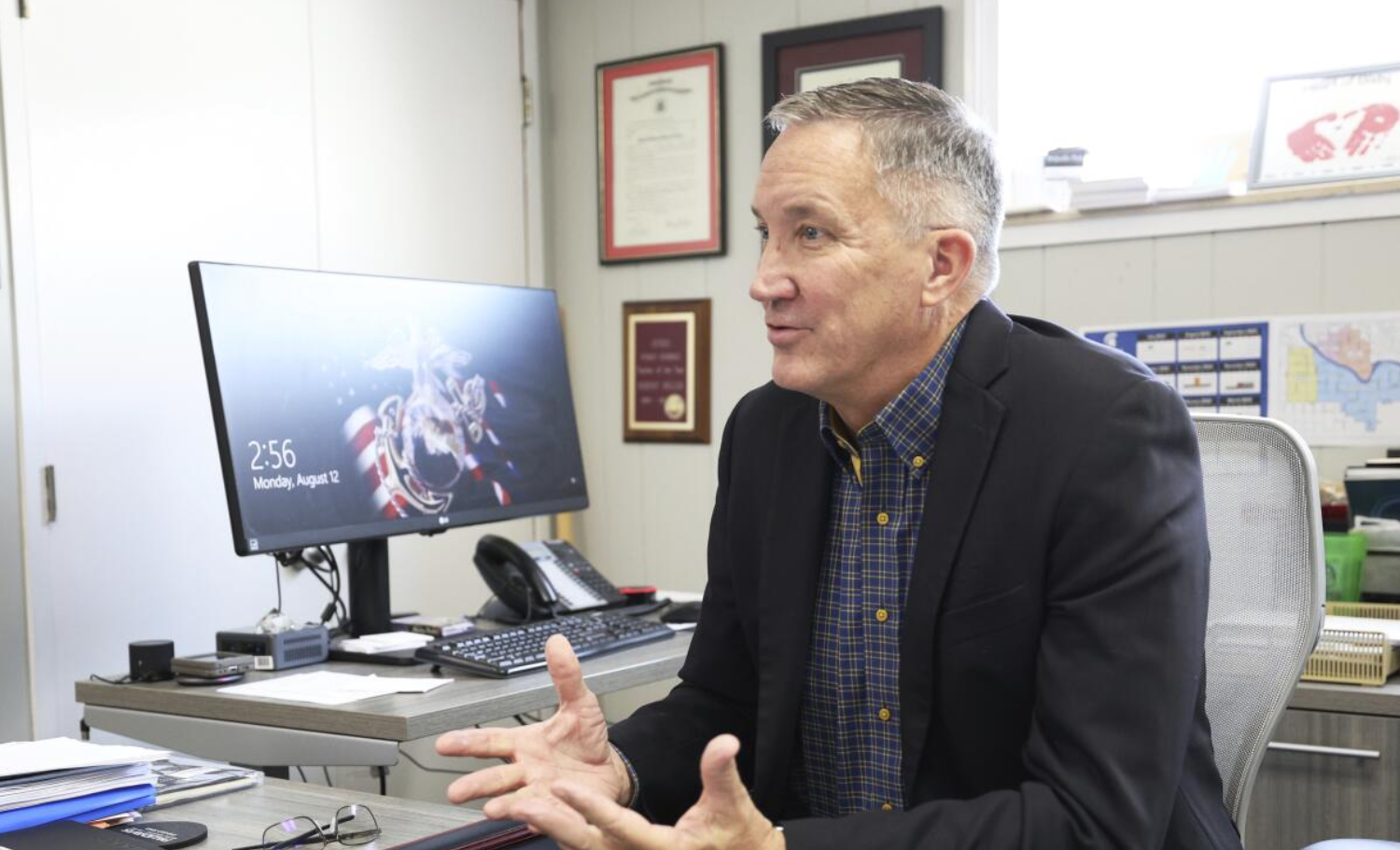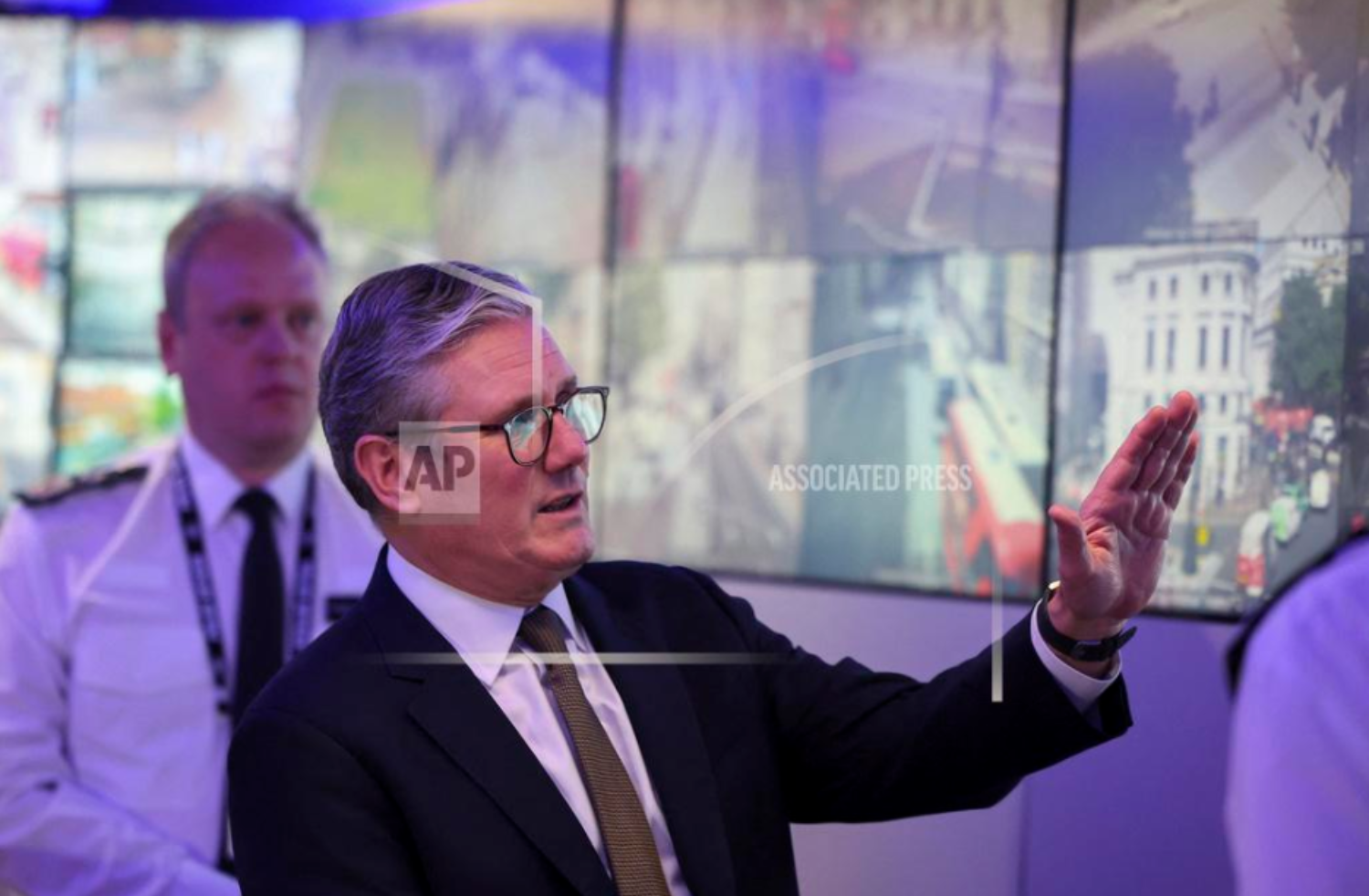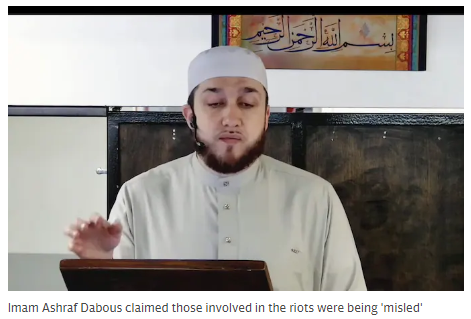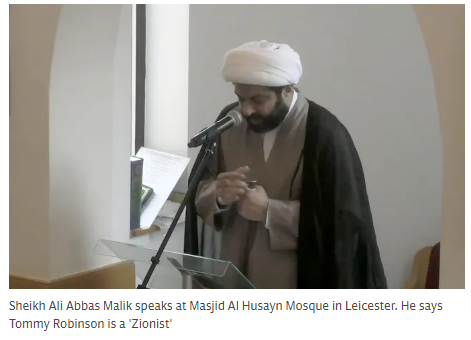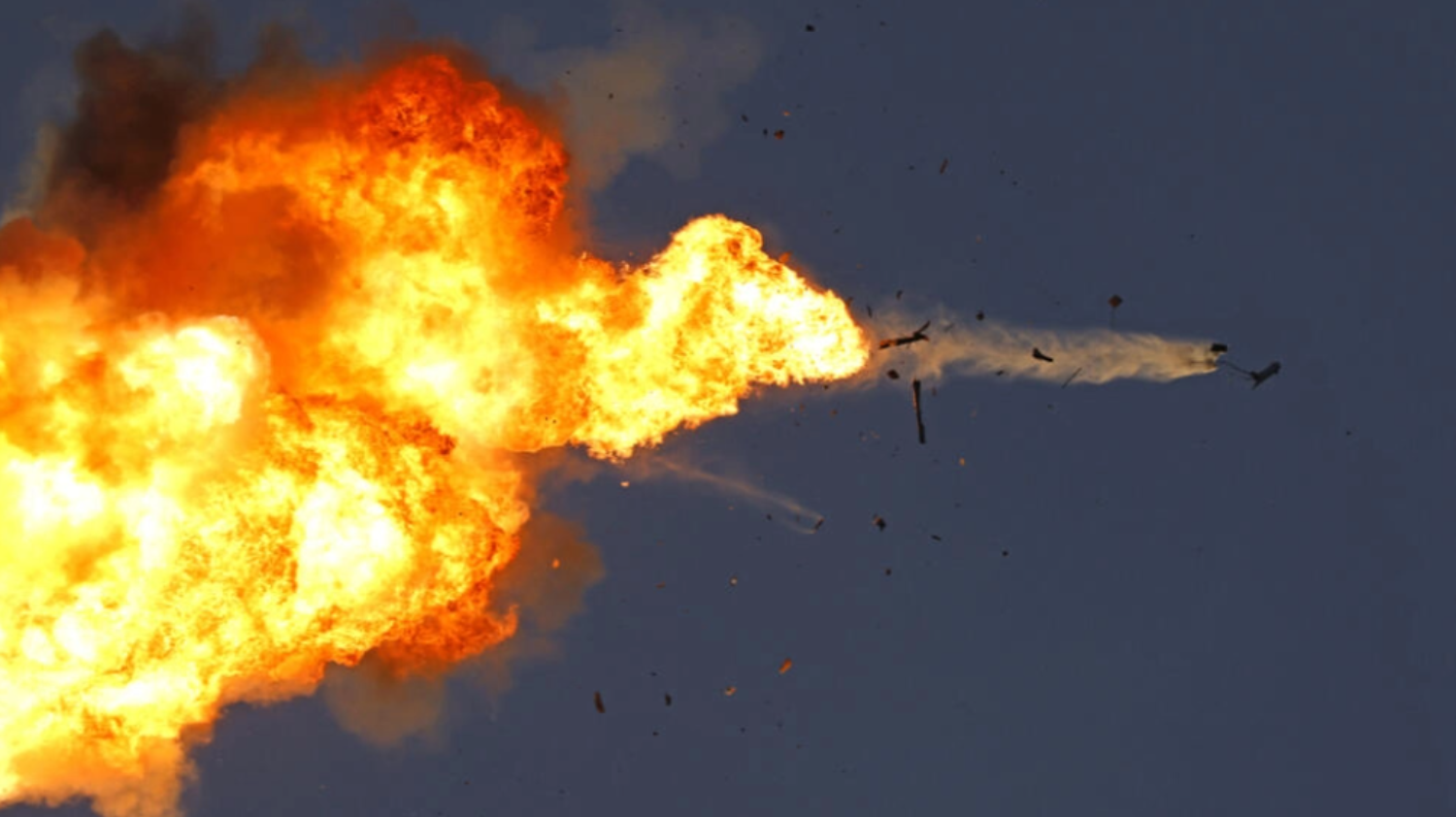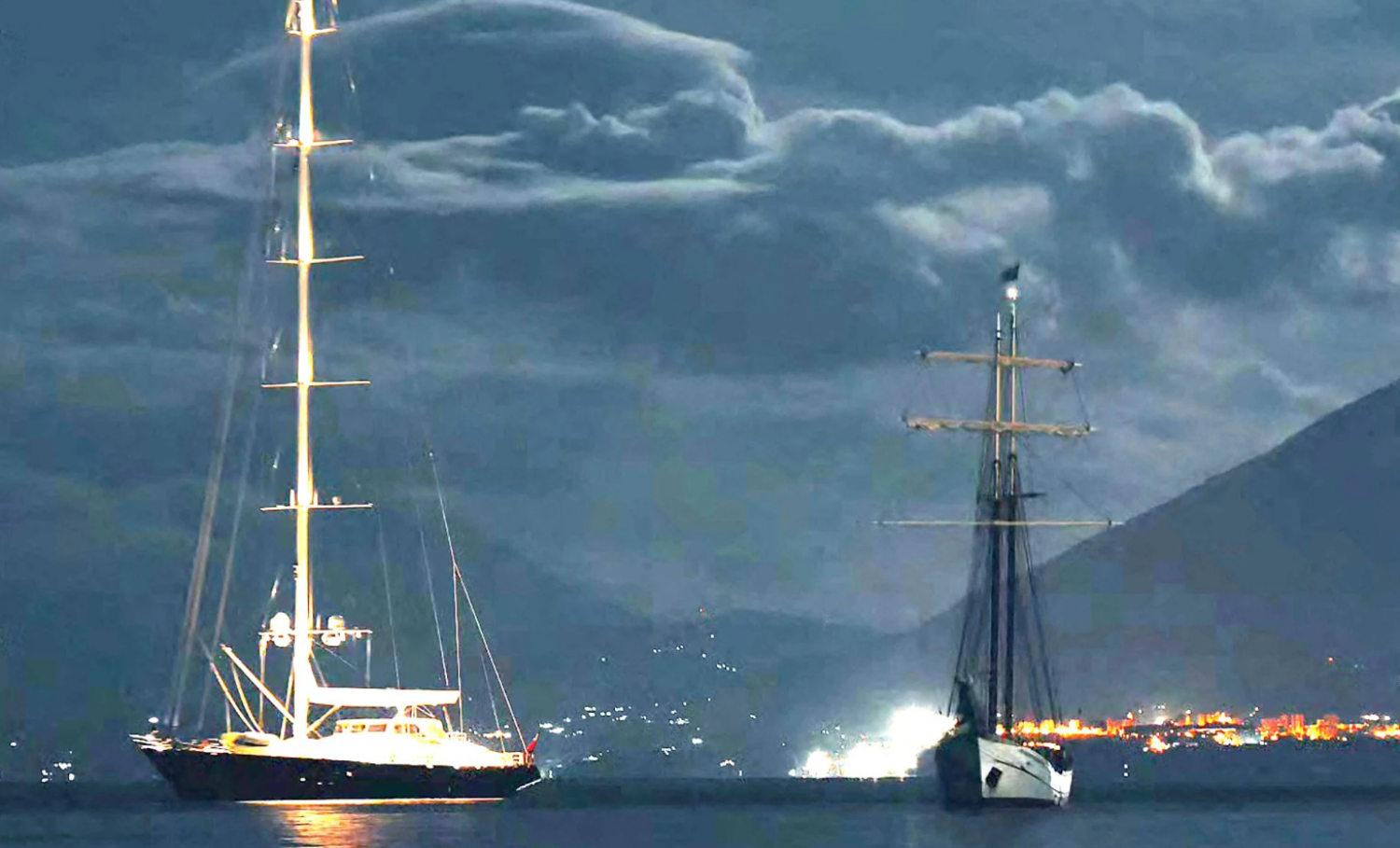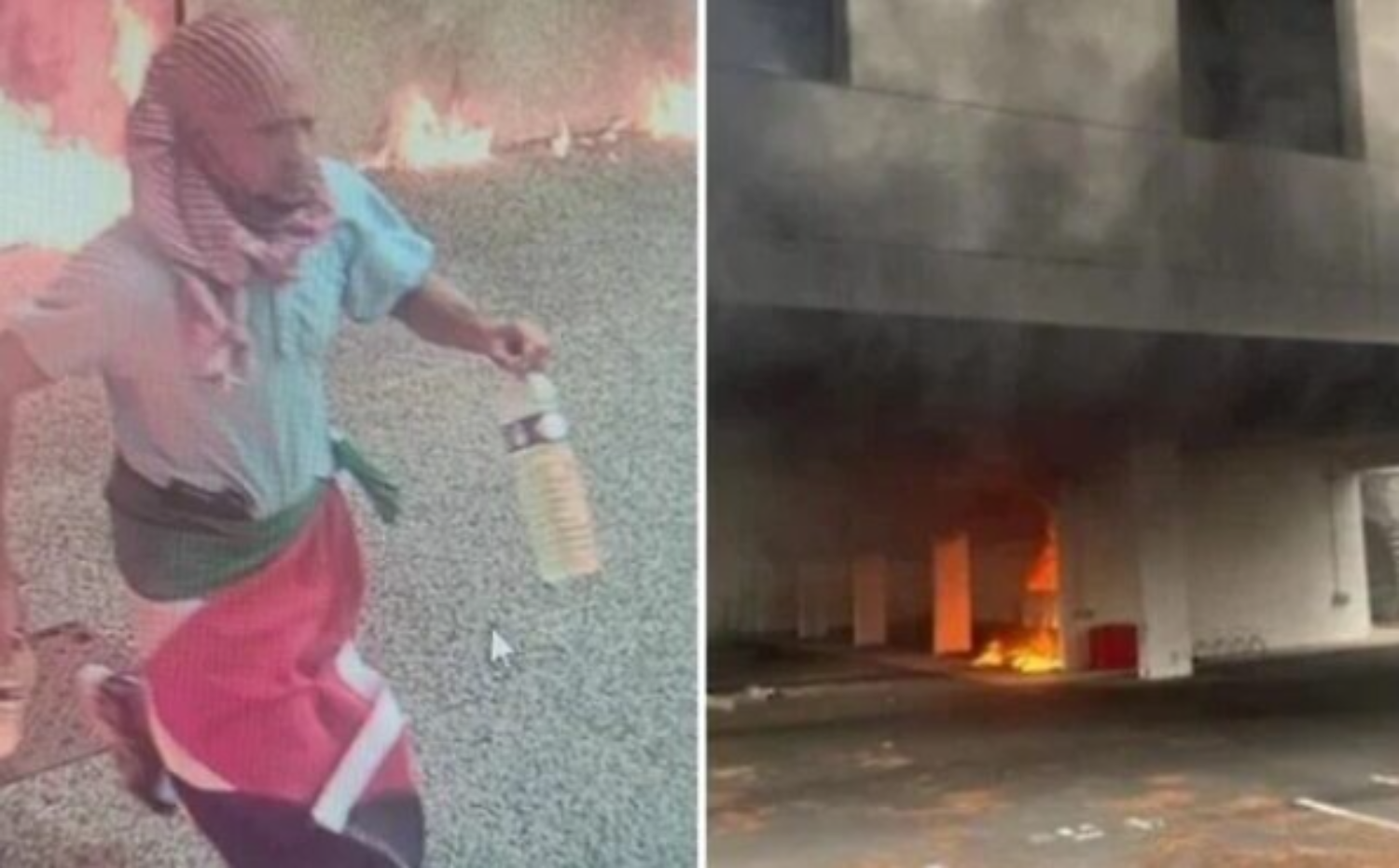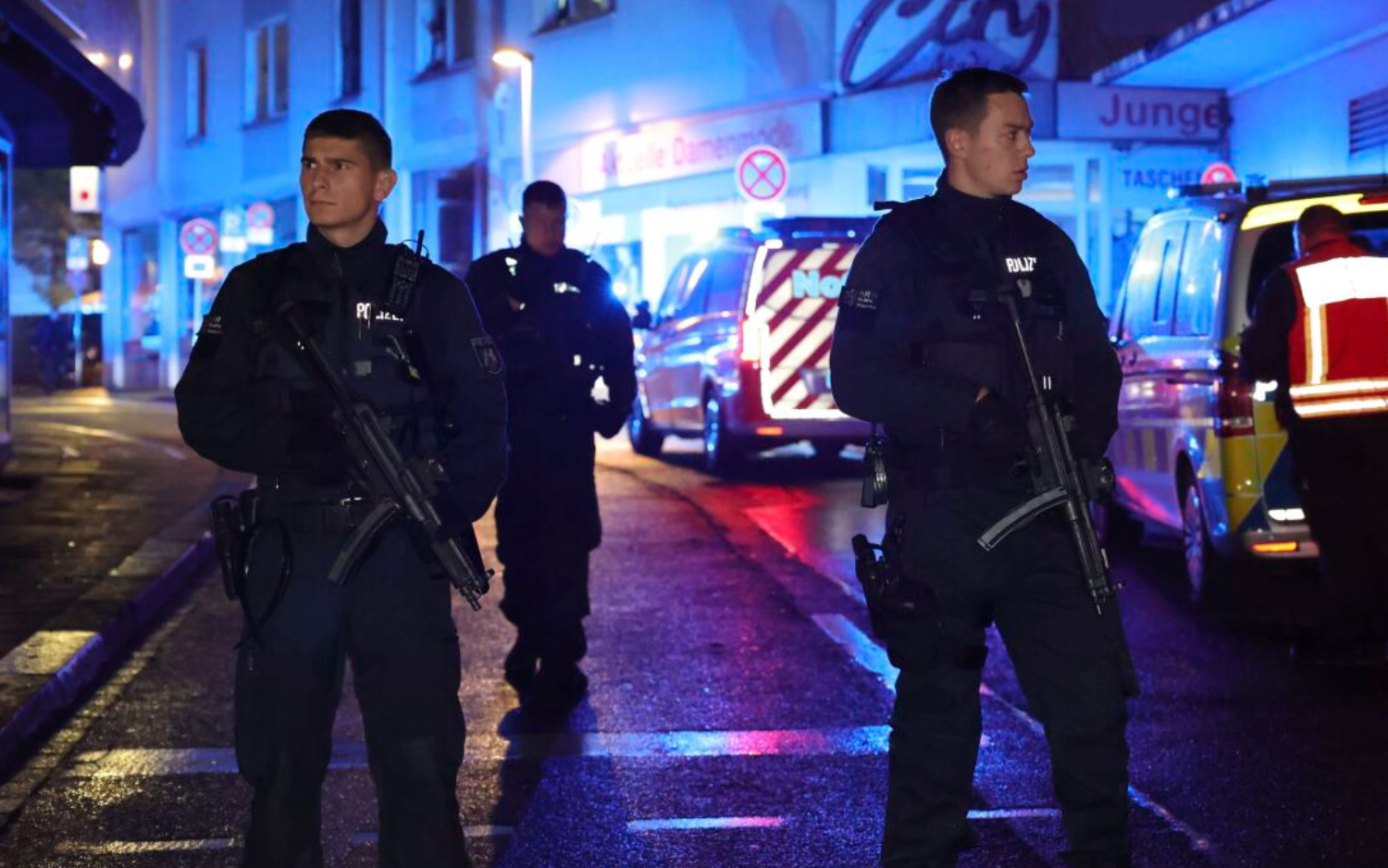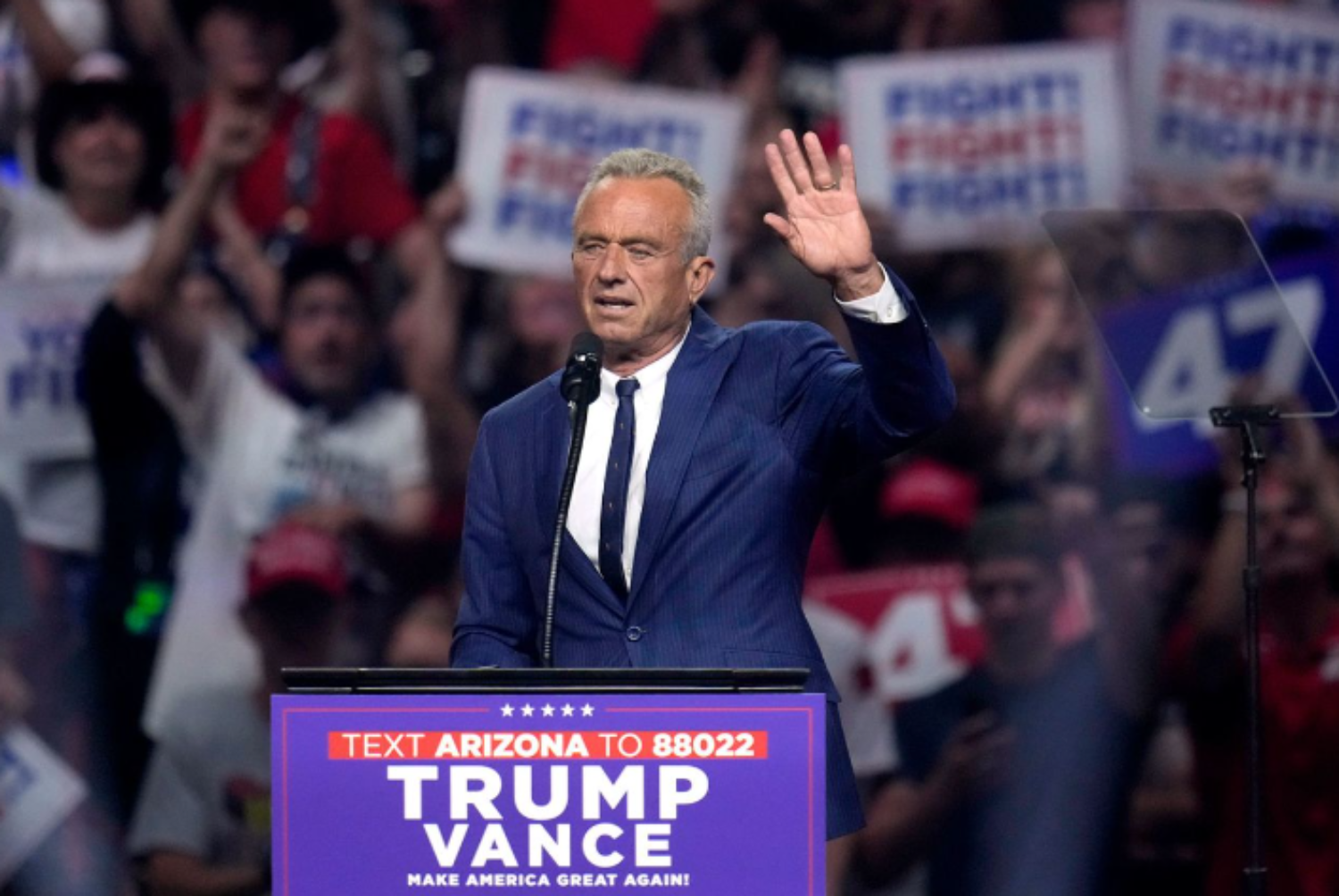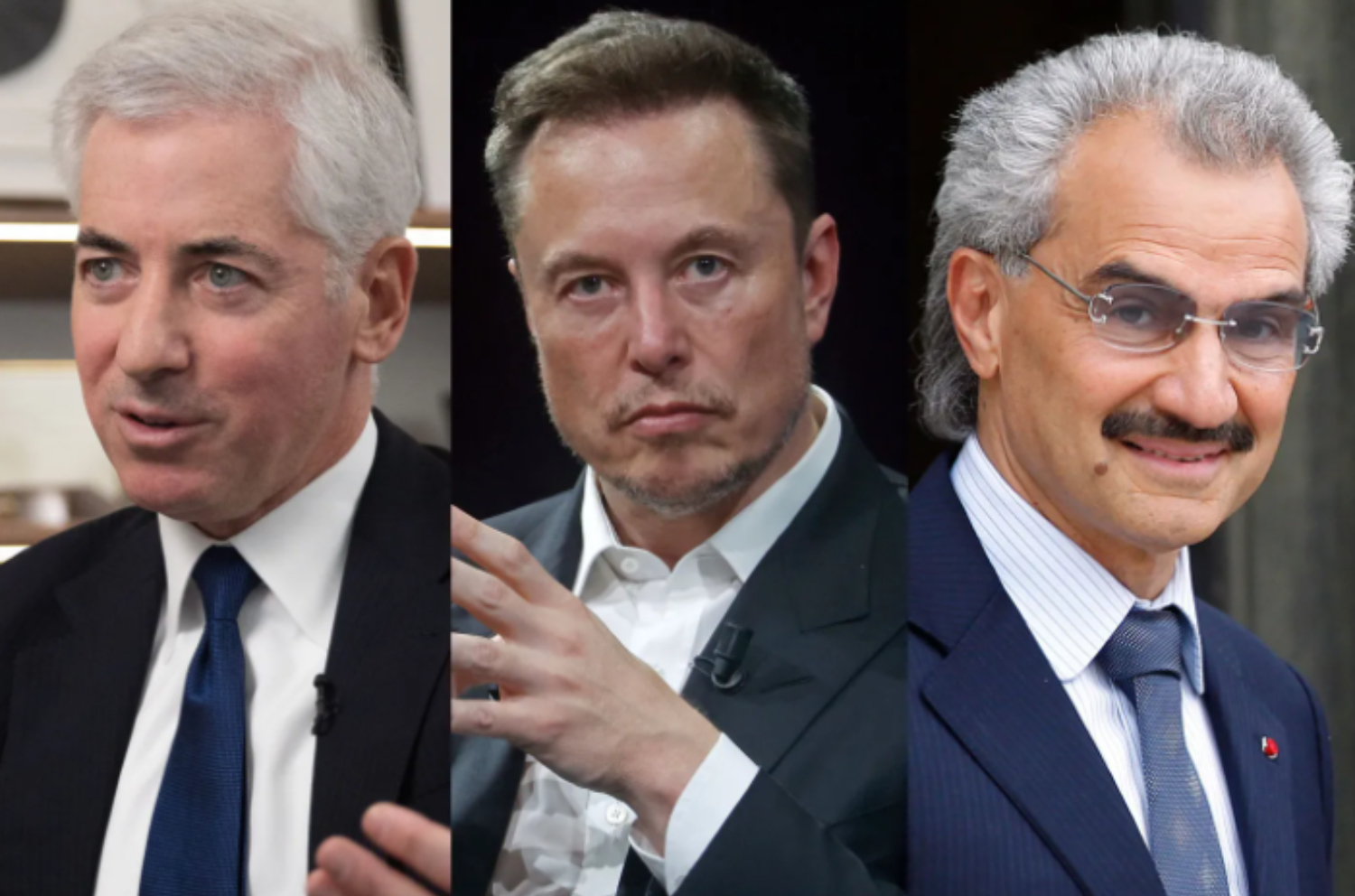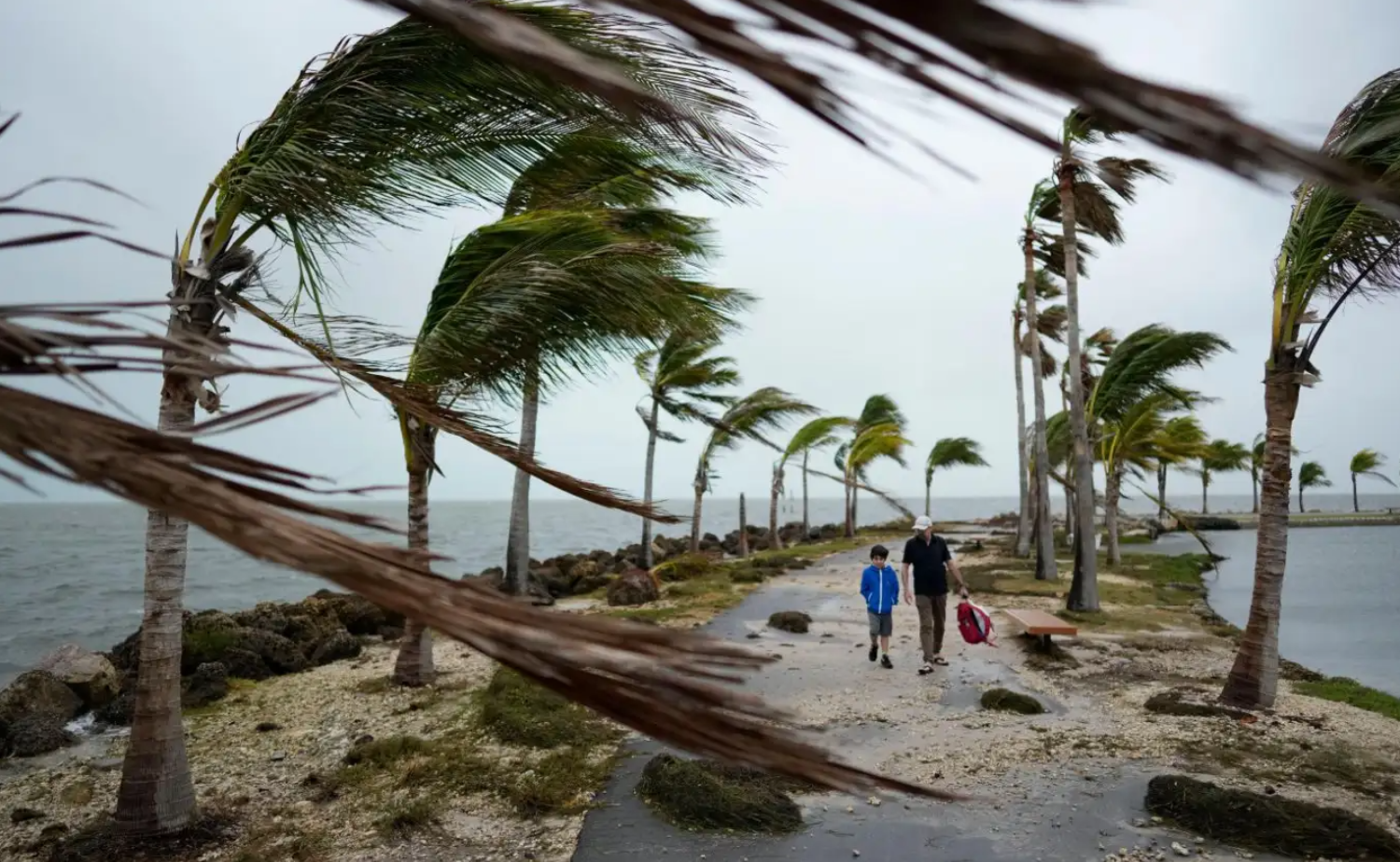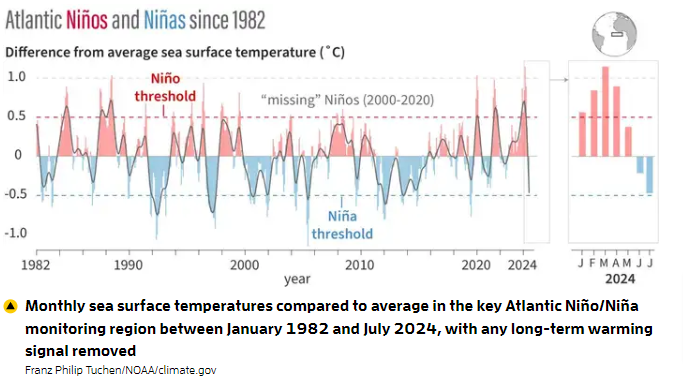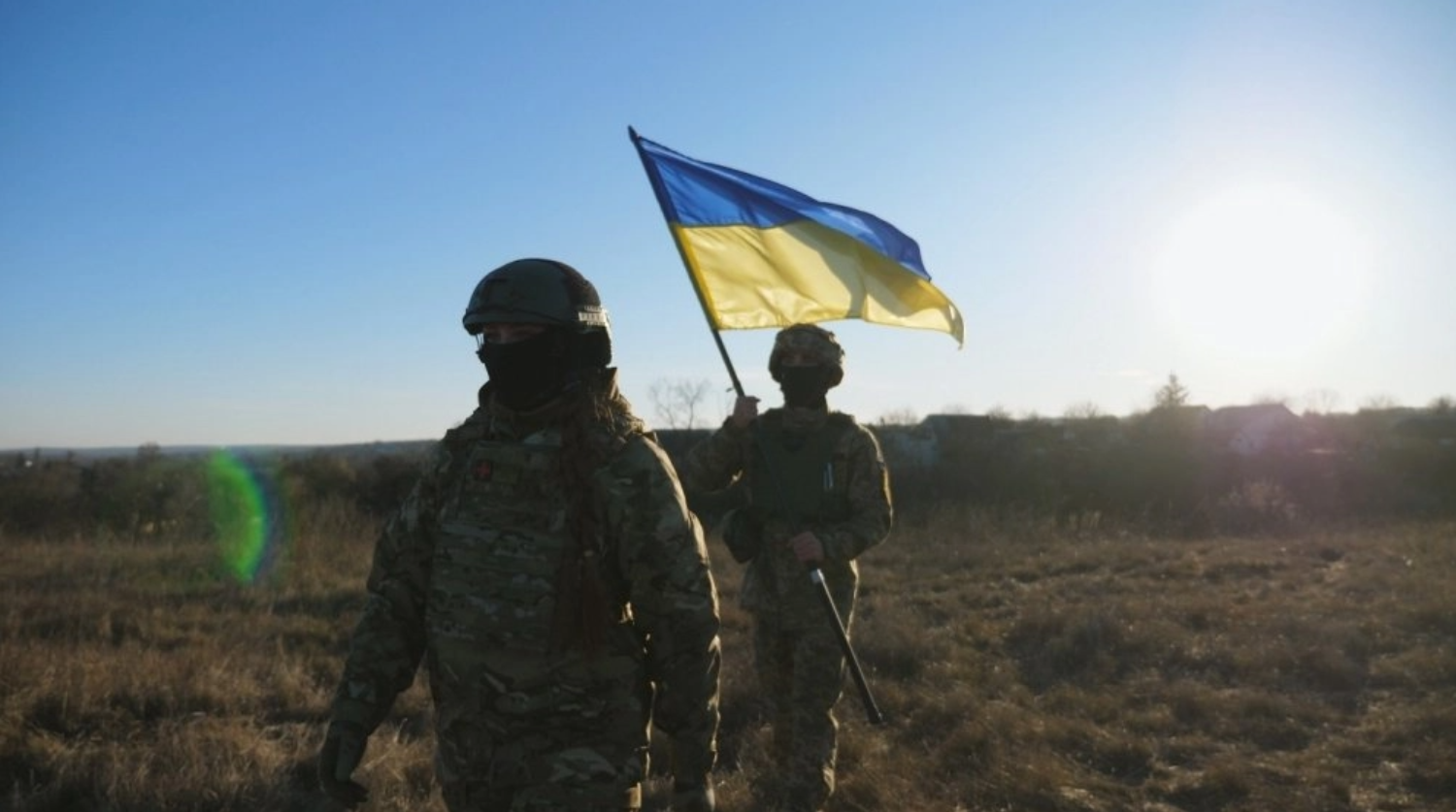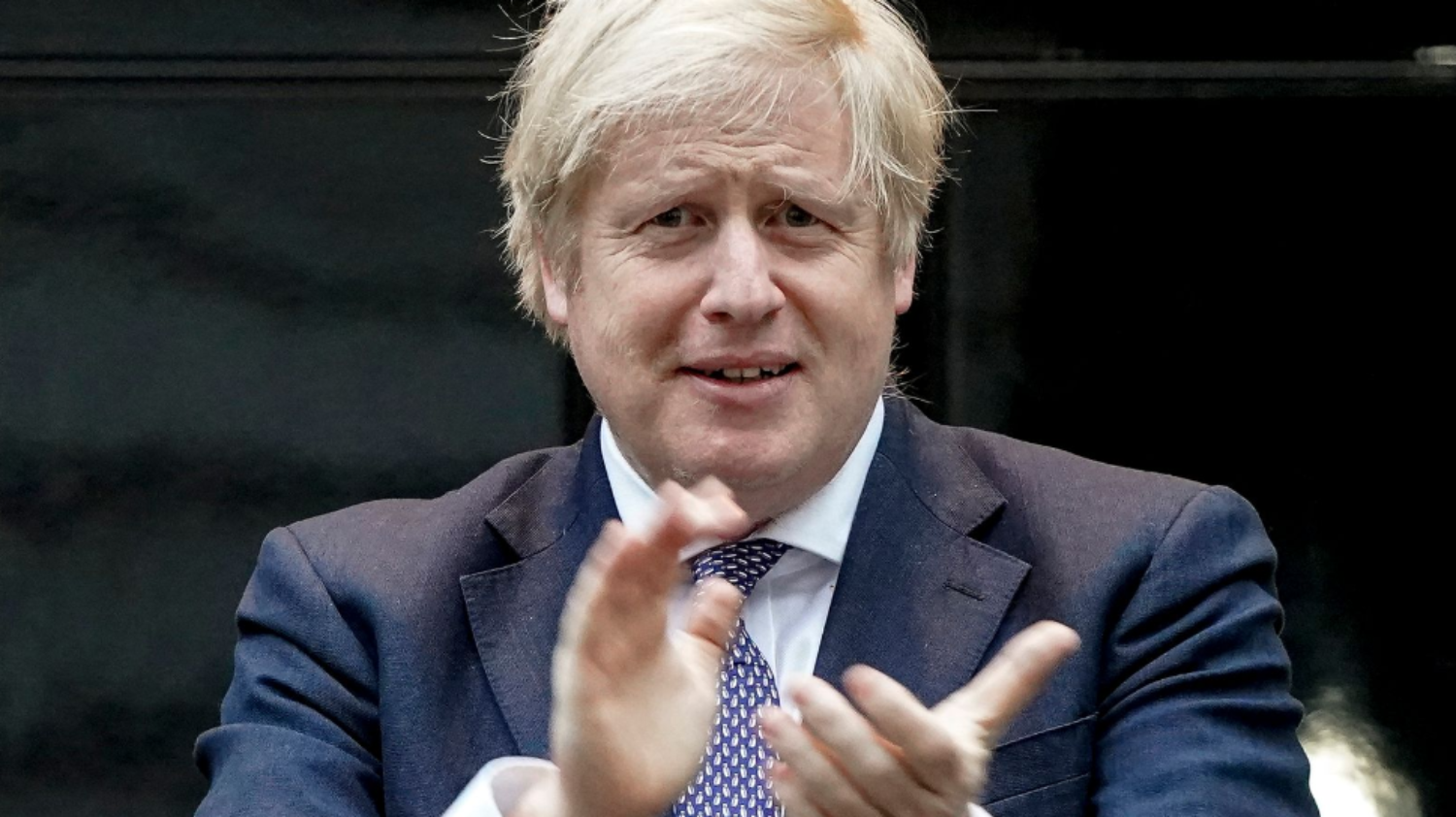-
Posts
10,094 -
Joined
-
Last visited
Content Type
Events
Forums
Downloads
Quizzes
Gallery
Blogs
Everything posted by Social Media
-
The Taliban's repressive regime in Afghanistan has taken yet another draconian step toward erasing the presence and identity of women in public life. In a newly issued set of laws, spanning 114 pages and 35 articles, the militant group has imposed severe restrictions on women’s freedoms, including a ban on their voices and bare faces in public. This document, seen by The Associated Press, reflects the Taliban's unyielding commitment to a version of Islamic law that strips away the basic rights and dignities of women. These laws were officially enacted on Wednesday, with the approval of the Taliban's supreme leader, Hibatullah Akhundzada. The Taliban, which regained control of Afghanistan following the U.S. withdrawal in 2021, has systematically dismantled the rights of women and girls that had been arduously gained over the past two decades. The new regulations mark a significant escalation in this process, pushing Afghan women further into the shadows of society. "Inshallah, we assure you that this Islamic law will be of great help in the promotion of virtue and the elimination of vice," stated ministry spokesperson Maulvi Abdul Ghafar Farooq on Thursday, according to the AP. This statement encapsulates the Taliban's justification for their oppressive measures, cloaking their actions in the rhetoric of religious piety. The laws cover a broad spectrum of public and private life, with specific instructions on everything from celebrations and music to transportation and personal grooming. One of the most disturbing aspects of these regulations is detailed in Article 13, which mandates that women must cover their faces in public and refrain from wearing short or tight clothing. This article extends the Taliban’s already harsh dress codes, further restricting women’s autonomy over their own bodies. Article 13 also goes further by banning women from looking at men to whom they are not related by marriage or blood. This prohibition is a stark indicator of the Taliban's desire to control not just women's appearance, but their very interactions with the world around them. Moreover, women are now forbidden from singing or reading aloud, effectively silencing their voices in both literal and metaphorical terms. The imposition of these laws comes on the heels of a United Nations report in July, which accused the Taliban's Ministry for the Promotion of Virtue and Prevention of Vice of widespread intimidation and human rights violations. The report highlighted the ministry’s role in enforcing gender apartheid and other forms of oppression. However, the ministry has rejected these claims, continuing to assert that their actions are in line with Islamic principles. The Taliban's latest legal directives represent not just a violation of women’s rights, but a profound erosion of the social fabric of Afghanistan. Women, who once had the opportunity to participate in education, work, and public life, are now being systematically erased from public visibility. These laws not only isolate women physically by confining them to their homes and cloaking them in public but also silence their voices, cutting them off from the broader discourse of society. The international community has expressed concern over the Taliban's treatment of women, but these latest developments underscore the regime's disregard for global criticism. The Taliban's actions appear to be driven by an ideological commitment to a rigid interpretation of Islamic law, which they claim is necessary for the promotion of virtue and the elimination of vice. Yet, in practice, these laws serve to entrench the Taliban's power by enforcing strict gender segregation and limiting the role of women to one of subservience and invisibility. The situation in Afghanistan remains dire, particularly for women and girls who are facing an increasingly oppressive environment. The Taliban's laws are a stark reminder of the challenges that lie ahead for those advocating for human rights and gender equality in the country. As these new regulations take effect, the voices and faces of Afghan women are being forced into silence and obscurity, marking a tragic step backward for a nation that had once shown signs of progress. Credit: Hill 2024-08-26 Get the ASEAN NOW daily NEWSLETTER - Click HERE to subscribe
-
The International Criminal Court's (ICC) chief prosecutor, Karim Khan, reaffirmed the court's jurisdiction over the ongoing Israel-Hamas conflict and urged judges to promptly rule on his request for arrest warrants targeting Israeli Prime Minister Benjamin Netanyahu and other key figures. The call came in a 49-page legal brief submitted by Khan, who stressed that "it is settled law that the Court has jurisdiction in this situation." Khan’s appeal to the ICC pretrial judges is a direct response to his earlier filings in May, in which he requested arrest warrants for Netanyahu, Israel's Defense Minister Yoav Gallant, and three senior Hamas leaders—Yehya Sinwar, Mohammed Deif, and Ismail Haniyeh. Since that filing, both Haniyeh and Deif have been killed in the ongoing conflict. Khan’s May request was based on accusations of war crimes and crimes against humanity committed by both Israeli and Hamas leaders in the Gaza Strip and Israel. Sinwar, who orchestrated the October 7 attacks on Israel, has since been named Hamas' new leader in Gaza. The prosecutor’s move comes amidst a complex backdrop of legal arguments submitted by various countries, academics, victims' groups, and human rights organizations, either contesting or supporting the ICC’s authority to issue these arrest warrants. A central focus of these arguments has been whether the ICC's jurisdiction is nullified by a clause in the 1993 Oslo Accords, which stipulated that the Palestinians would not have criminal jurisdiction over Israeli nationals. Khan dismissed this argument, labeling it as "without merit" and asserting that it conflicts with a proper interpretation of the Rome Statute, the founding treaty of the ICC. He further contended that the argument "misunderstands basic concepts of jurisdiction under international law, including under the law of occupation," and how these principles apply to the court's mandate. The potential issuance of arrest warrants against Netanyahu and Gallant could have significant implications, particularly for their international travel, as Israel is not a member of the ICC. While the immediate risk of prosecution is minimal, the threat of arrest could hinder their movements abroad. Netanyahu has vehemently denied the accusations, calling Khan's actions a "disgrace" and an attack not just on himself but on the entire Israeli military and the state of Israel. Despite this, he vowed to continue Israel’s military operations against Hamas. Hamas, in turn, condemned Khan's efforts, arguing that the prosecutor was equating "the victim with the executioner." The Israel-Hamas war, which erupted on October 7 following a surprise assault by Hamas militants that resulted in the deaths of around 1,200 people, mostly civilians, has been devastating. The militants also abducted approximately 250 individuals, of whom around 110 remain in Gaza, with a third believed to be dead. Israel's retaliatory strikes have led to the deaths of more than 40,000 Palestinians, according to Gaza's Hamas Health Ministry, although the distinction between militants and civilians in this toll remains unclear. As the legal debate over the ICC's jurisdiction continues, the timeline for the judges' ruling on Khan's request remains uncertain. The decision will be closely watched, as it could set a precedent for the court's authority in complex and highly charged international conflicts. Credit: ABC News 2024-08-26 Get the ASEAN NOW daily NEWSLETTER - Click HERE to subscribe
-
The Kennedy family, long-standing pillars of the Democratic Party, faced a profound rupture on Friday as Robert F. Kennedy Jr., once a prominent independent presidential candidate, publicly endorsed former President Donald Trump. This decision, which Kennedy announced while suspending his campaign, was met with sharp criticism from his siblings, who called it a "betrayal of the values that our father and our family hold most dear." Kerry Kennedy, one of RFK Jr.'s siblings and the president of the Robert F. Kennedy Human Rights organization, issued a strong rebuke alongside four of her siblings—Courtney Kennedy, Chris Kennedy, Rory Kennedy, and former Maryland Lt. Gov. Kathleen Kennedy Townsend. In their joint statement, they expressed deep dismay at their brother's decision to align himself with Trump. "We want an America filled with hope and bound together by a shared vision of a brighter future," Kerry Kennedy wrote. "We believe in Harris and Walz. Our brother Bobby’s decision to endorse Trump today is a betrayal of the values that our father and our family hold most dear." The statement concluded with a somber reflection on the situation: "It is a sad ending to a sad story." The timing of RFK Jr.'s announcement was not unexpected. For much of the week, speculation had been mounting that he would endorse Trump. On Wednesday, Kennedy had signaled that he would be making a significant announcement about the future of his candidacy. True to his word, he used Friday's address to make his endorsement official while also declaring the suspension of his independent campaign. Kennedy revealed that he would be removing his name from the ballot in key swing states such as Pennsylvania and Arizona, though it would remain on the ballot in states firmly aligned with either the Democratic or Republican parties. During his address, Kennedy spent much of his time criticizing the Democratic Party and the media, accusing them of denying him a fair chance in the presidential race. "In my heart, I no longer believe that I have a realistic path to electoral victory in the face of this relentless, systematic censorship and media control," he stated at the press conference. "So I cannot in good conscience ask my staff and volunteers to keep working their long hours, or ask my donor to keep giving when I cannot honestly tell them that I have a real path to the White House." Kennedy's decision to withdraw from swing states like Arizona and Pennsylvania came swiftly after his Wednesday announcement. Sources close to Kennedy have indicated that he is in negotiations with the Trump campaign for a potential role in a second Trump administration. This move further fueled the ire of his siblings, who have been critical of RFK Jr.'s political ambitions from the outset. The Kennedy family has been synonymous with the Democratic Party since John F. Kennedy's presidency, and RFK Jr.'s independent bid was a departure from this legacy. The family had previously dismissed his candidacy, expressing concern over his divergence from their shared values. Last year, when RFK Jr. launched his presidential campaign, several family members publicly denounced his candidacy, particularly in light of his controversial anti-vaccination stance during the COVID-19 pandemic. "Bobby might share the same name as our father, but he does not share the same values, vision, or judgment. Today’s announcement is deeply saddening for us. We denounce his candidacy and believe it to be perilous for our country," some of Kennedy’s siblings wrote at the time. The fallout from RFK Jr.'s latest decision was swift, with other members of the Kennedy family also expressing their disappointment. Jack Schlossberg, the grandson of former President John F. Kennedy, took to social media to voice his dismay. "Never been less surprised in my life. Been saying it for over a year — RFK Jr. is for sale, works for Trump. Bedfellows and loving it," Schlossberg wrote on the platform X, formerly known as Twitter. He went on to praise Vice President Kamala Harris, stating, "Kamala Harris is for the people — the easiest decision of all time just got easier." The Kennedy family's reaction to RFK Jr.'s endorsement of Trump underscores the deep divisions that have emerged within the family as a result of his political choices. For a family that has long championed progressive values and Democratic ideals, RFK Jr.'s decision to side with Trump represents a stark and painful divergence from the path laid out by their forebears. As the Kennedy siblings lamented in their statement, it is indeed a sad ending to what has become a deeply troubled chapter in the family's storied history. Credit: Hill 2024-08-26 Get the ASEAN NOW daily NEWSLETTER - Click HERE to subscribe
-
In the rapidly expanding suburb of Bixby, Oklahoma, where a state-of-the-art high school and a $12 million football complex upgrade are on the horizon, a new conflict is brewing. Despite the district’s progress in infrastructure, a directive from the state’s education chief mandating that every classroom include a Bible has sparked resistance as students return to school. This resistance is not isolated; other large school districts across Oklahoma have also shown reluctance to comply with the new order, which has placed the state at the forefront of a growing movement to increase religion’s presence in public schools across the United States. The directive, issued over the summer, requires all public schools in Oklahoma to integrate Bible lessons into the curriculum for students in grades five through twelve. However, as students returned to school this week, it became apparent that the Bixby school district, among others, was not adhering to the mandate. Superintendent Rob Miller of Bixby, a former Marine Corps artilleryman with a decorated past in marathon running, has been vocal in his opposition. While acknowledging that it’s common for students to bring Bibles to school or pray during moments of silence, Miller questioned the purpose of placing a Bible in every classroom, particularly in subjects where it seems irrelevant. “If there is no curricular standard that ties with that particular classroom, what would be the purpose of a Bible if not for pure indoctrination?” Miller asked. He added, “As a Christian myself, I am a little offended by diminishing the word of God to a mere classroom prop.” Bixby’s high school library does offer copies of the Bible for checkout, alongside a book titled “The History of the Bible,” which provides maps and historical details about the regions mentioned in scripture. However, Miller emphasized that the presence of a Bible in classrooms like seventh grade math or high school chemistry is unnecessary and inappropriate. Despite the clear resistance, the state’s education department, represented by spokesperson Dan Isett, has made it clear that the mandate is non-negotiable. Isett stated that the state superintendent has “a wide range of tools to deal with rogue districts” that refuse to comply. Yet, the enforcement of this mandate remains uncertain, with many Oklahoma school districts disregarding it. These districts have sought guidance from law firms and the Oklahoma Education Association, the state’s largest teachers union, which have advised that the superintendent lacks the authority to impose such a requirement unilaterally. They argue that the directive is unenforceable. The controversy has put state Superintendent Ryan Walters, a first-term Republican who has made waves with his staunch opposition to what he calls “woke ideology,” in the spotlight. At a recent board meeting, Walters criticized the districts that have resisted his directive, accusing them of hypocrisy. He drew a parallel between their refusal to comply with the Bible mandate and their alleged willingness to expose students to “pornography” under the guise of inclusivity, referencing his failed attempt to remove certain books with sexual content from a local school’s library. “It’s outrageous. We will not allow it,” Walters declared. “Just because they don’t like it, just because they’re offended by it, just because they don’t want to do it doesn’t mean that they won’t do it. They will be held accountable.” The debate over the Bible mandate is just the latest chapter in a broader effort by conservative-led states to reshape the role of religion in public schools. Similar initiatives have been seen in states like Louisiana, where schools are required to post the Ten Commandments in classrooms, and Texas, where Republicans are advancing efforts to incorporate the Bible into the curriculum. In Oklahoma, these actions come on the heels of a recent Supreme Court decision blocking an attempt to establish the nation’s first publicly funded religious charter school, further fueling the tension between church and state. Walters, a former public school teacher elected in 2022, has made it his mission to ban books from school libraries and remove what he describes as “radical leftists” from classrooms. However, his aggressive approach has caused friction even within his own party. State Rep. Mark McBride, a Republican who chairs the subcommittee responsible for funding public schools, recently called for an investigation into Walters, citing failures to comply with legislative directives on funding and transparency issues regarding the department’s expenditures. McBride’s call for an investigation has garnered the support of more than two dozen GOP House members, leading to a request from House Speaker Charles McCall for an independent inquiry into the education department. Walters, however, dismissed the investigation as a “political attack” from House leaders, insinuating that the real motive behind the inquiry might be related to the upcoming 2026 governor’s election, for which both McCall and Walters are considered potential candidates. The ongoing political drama adds another layer of complexity to the situation, as schools and educators navigate the challenges of balancing educational standards, religious freedoms, and political pressures. In Bixby, opinions on the Bible mandate are divided. Grant Sullivan, a local business owner and pastor, expressed skepticism about the policy’s effectiveness. Sullivan, who delivers sermons at a small church in nearby Morris, questioned whether the mandate is truly beneficial for students and educators alike. As the school year progresses, the clash between state directives and local autonomy is likely to intensify. The outcome of this standoff will not only shape the educational landscape in Oklahoma but could also influence similar debates in other states, as the role of religion in public schools remains a contentious issue in American society. Credit: The Independent 2024-08-26 Get the ASEAN NOW daily NEWSLETTER - Click HERE to subscribe
-
Prime Minister Sir Keir Starmer will deliver a stark warning this week, asserting that conditions in Britain will deteriorate before they improve. In his address, Starmer will claim that there is "rot deep in the heart" of the nation, a situation that demands significant and potentially painful reforms. This message will be interpreted by many as a precursor to imminent tax increases and spending cuts, with Starmer positioning himself as the leader who inherited not only an "economic black hole" but also a "societal black hole." Speaking from Germany, where he will meet with Chancellor Olaf Scholz, Starmer will address the working people of Britain with a candid message: he must make "unpopular decisions" to steer the country towards recovery. "I will be honest about the choices we face and how tough this will be," he will state. "Frankly – things will get worse before they get better." Starmer's rhetoric underscores the gravity of the situation. "When there is rot deep in the heart of a structure, you can’t just cover it up. You can’t tinker with it or rely on quick fixes. You have to overhaul the entire thing. Tackle it at the root. Even if it’s harder work and takes more time," he will explain. The Prime Minister's remarks reflect his belief that without addressing these fundamental issues, the nation risks seeing the same problems reemerge, potentially in a more severe form. "The rot returns. In all the same places. And it spreads. Worse than before. You know that – and I know that. That’s why this project has always been about fixing the foundations of this country." Throughout his campaign, Starmer has repeatedly promised not to increase taxes on "working people," assuring voters that a Labour government would not raise VAT, income tax, or National Insurance. However, his reluctance to rule out other tax hikes has led to speculation that increases in capital gains tax, inheritance tax, and business taxes may be on the horizon. Last month, Chancellor Rachel Reeves conceded that tax hikes would be necessary in the upcoming Budget on October 30, a point that Starmer will emphasize in his speech. In his first comments on the financial situation since Reeves claimed that the Conservatives had left a £22 billion gap in public finances, Starmer will go further, warning that the crisis is not just economic but also societal. "If we don’t take tough action across the board, we won’t be able to fix the foundations of the country like we need," he will argue. The Prime Minister is prepared to make difficult decisions, even if they prove unpopular. "I won’t shy away from making unpopular decisions now if it’s the right thing for the country in the long term. That’s what a Government of service means," he will declare. The Prime Minister's speech follows a statement by Darren Jones, Chief Secretary to the Treasury, suggesting that an increase in employers' National Insurance contributions might be on the table. Jones recently softened the Chancellor's earlier commitment to not increase National Insurance, indicating that the promise to freeze "employee National Insurance" would still be honored. In his upcoming remarks, Starmer is expected to defend his government's decision to grant inflation-busting pay raises to public sector workers, a move that has drawn criticism from some quarters. Earlier this month, Reeves announced a 5.5 percent pay increase for millions of workers, including teachers and nurses, with prison service workers and senior NHS managers receiving a 5 percent boost. Despite this, the government has faced backlash, especially after some train drivers, who were offered a 14 percent pay rise over three years, announced a new strike over a separate dispute shortly after. Starmer will argue that these pay rises are necessary to maintain the functioning of essential services. "I defy anyone to tell me that you can grow an economy when people can’t get to work – because the transport system is broken. Or can’t return to work – because they’re stuck on an NHS waiting list," he will say. He will highlight his government's achievements, claiming, "We’ve done more in seven weeks than the last government did in seven years. And these are just the first steps towards the change people voted for. The change I’m determined to deliver." However, Starmer's government has also faced criticism for its decision to cut the universal winter fuel allowance, a move that has particularly angered pensioners. The Prime Minister's stance on this issue has been challenged by Richard Fuller, the Tory Party chairman, who accused Starmer of prioritizing union interests over vulnerable pensioners. "Just two months in and Keir Starmer has taken winter fuel payments off 10 million pensioners and showered billions of taxpayers’ money on his union paymasters," Fuller said. He further criticized the Labour government for "squandering money" and fabricating a financial crisis to justify tax increases, leaving pensioners "literally in the cold." Starmer's speech will also address the summer riots that swept across the country, forcing him to cancel his holiday. He will argue that the violence was fueled by "populism" and the exploitation of "cracks in our society." Drawing a parallel with the 2011 London riots, during which he served as Director of Public Prosecutions, Starmer will contend that the nation is now in a worse state than it was back then. He will express regret over the decision to release prisoners early, a move announced last month, but will argue that it was necessary to free up prison space to manage the riots effectively. Reflecting on the situation, Starmer will lament, "When I think back to that time, I see just how far we’ve fallen. Because responding to those riots was hard, but dealing with the riots this summer was much harder." He will describe the lack of sufficient prison space as "about as fundamental a failure as you can get." The Prime Minister will accuse the rioters of exploiting a broken system, saying, "Those people throwing rocks, torching cars, making threats – they didn’t just know the system was broken. They were betting on it. They were gaming it. They saw the cracks in our society after 14 years of populism and failure – and they exploited them. That’s what we have inherited." As Starmer prepares to deliver this sobering address, the challenges facing his government are becoming increasingly clear. With tough decisions on the horizon, the Prime Minister is set to argue that only by addressing the deep-rooted issues at the heart of Britain can the country begin to rebuild and move forward. His message to the nation will be one of honesty and resolve: the road ahead will be difficult, but it is the only path to lasting recovery. Credit: Daily Telegraph 2024-08-26 Get the ASEAN NOW daily NEWSLETTER - Click HERE to subscribe
-
Pavel Durov, the founder and CEO of the popular messaging app Telegram, has been arrested by French authorities at Le Bourget Airport, located just north of Paris. The 39-year-old tech entrepreneur was detained by French police after his private jet landed at the airport, following a flight from Azerbaijan. The arrest has sparked international attention, particularly due to the high-profile nature of the case and Durov's significant influence in the tech world. French media outlets reported that Durov’s arrest was conducted under a warrant related to alleged offenses connected to his messaging platform, Telegram. According to officials, Durov was apprehended due to ongoing concerns regarding the app's lack of content moderation, which has allegedly allowed it to be used for illicit activities, including money laundering, drug trafficking, and the distribution of pedophilic content. These allegations have put Telegram under intense scrutiny from various governments and regulatory bodies around the world. The arrest was carried out by officers from France’s anti-fraud office, which operates under the jurisdiction of French customs. The operation took place on Saturday evening, immediately after Durov arrived at Le Bourget Airport. French television channel BFMTV provided further details, indicating that the warrant had been issued in France specifically due to the platform's failure to adequately police illegal activities occurring on Telegram. In response to the arrest, Russia's embassy in France has begun taking "immediate steps" to clarify the situation and secure more information about Durov's detention. This was reported by Russia's TASS state news agency, which emphasized the embassy's concern and proactive approach to addressing the matter. Telegram, which was founded by Durov in 2013, has grown to become one of the most popular messaging apps globally, particularly in Russia, Ukraine, and other former Soviet Union states. The platform, known for its strong encryption and privacy features, has often been at the center of controversy due to its perceived leniency towards content that other platforms might moderate or ban. The app's history with the Russian government has been particularly turbulent. In 2018, Telegram was banned in Russia after Durov refused to comply with demands from the Russian authorities to hand over user data. The ban, however, was reversed in 2021, allowing Telegram to continue operating in the country. Despite this, Durov has remained a vocal critic of government censorship and has consistently positioned Telegram as a bastion of free speech, even as it has faced criticism for the way it handles harmful or illegal content. Durov's rise to prominence began even before Telegram, with the founding of VKontakte (VK), a social media platform that became hugely popular in Russia. However, Durov left Russia in 2014 after refusing to comply with government orders to shut down opposition groups on VK. Following this, he sold his stake in VK and shifted his focus entirely to Telegram, which has since risen to rank among the major social media platforms, alongside giants like Facebook, YouTube, WhatsApp, Instagram, TikTok, and WeChat. The arrest of Pavel Durov at Le Bourget Airport marks a significant moment in the ongoing debate over the responsibilities of social media platforms in moderating content and preventing illegal activities. It also highlights the complex relationship between tech entrepreneurs like Durov and the governments that seek to regulate their platforms. As the situation unfolds, the tech world will be watching closely to see how this high-stakes legal battle plays out, and what it might mean for the future of Telegram and similar platforms that prioritize user privacy and freedom of expression. Credit: CNN 2024-08-26 Get the ASEAN NOW daily NEWSLETTER - Click HERE to subscribe
-
In the wake of recent clashes between far-Right rioters and Muslim counter-protesters, several religious leaders across the country have begun to point the finger at Zionists as the underlying force behind the unrest. The Telegraph has uncovered that multiple Imams have used their Friday prayer sermons to discuss what they believe are the true motives of those involved in the riots, a trend that has been described by campaign groups as both “alarming” and “divisive.” Imam Ashraf Dabous of Lewisham Islamic Centre in south London delivered a sermon earlier this month where he claimed that the individuals participating in the riots were being “misled” and “manipulated” by Zionists. “It is quite well known now, publicly, due to information that has been released online, that they are Zionists and they are supporters of the state of Israel,” Imam Dabous stated during his address. He further elaborated that recent actions were an attempt to “win some ground back for the Zionist agenda,” asserting that Zionists aim to portray Muslims as “savages, killers, and barbaric,” a depiction he argued is a projection of the actions of the Zionist state itself. Similarly, at the Darussalam Education Centre in Blackburn, worshippers were informed that the leaders behind the riots were “Zionist people.” The importance of “exposing them” as such was emphasized, although it is understood that the centre is currently investigating the matter. Meanwhile, in Leicester, Sheikh Ali Abbas Malik addressed the congregation at Masjid al Husayn, a Muslim community center, where he spoke of the “frustration” among the “white working class” who feel “overlooked by everyone.” He then claimed that “Zionists such as Tommy Robinson,” allegedly supported by the “Zionist regime,” are perpetuating these ideas among the white working class. Tommy Robinson, whose real name is Stephen Yaxley Lennon, is the founder of the anti-immigrant English Defence League and has been a polarizing figure in the UK. Despite his recent departure from the UK following an arrest under terrorism laws, Robinson remained vocal online during the riots, posting over 100 times on X (formerly Twitter) as the unrest spread across the country. At Kingston Muslim Association, Shaykh Mostahfiz Gani addressed worshippers on August 9th, asserting that “there is a link between Tommy Robinson and the IDF (Israel Defense Forces). There is a link between Zionists and the Right-wing fascists.” The rhetoric continued at Greenwich Islamic Centre, where Haitham al-Haddad, a preacher known for his controversial views, told his congregation that some of the rioters have a “Zionist” agenda and are attempting to “divert the attention” of the Government away from “condemning what the Zionist state Israel is doing.” These sermons have not gone unnoticed, particularly because all of the mentioned mosques are registered charities, which means they fall under the governance of the Charity Commission. Dr. Paul Stott, head of security and extremism at the think-tank Policy Exchange, remarked that the trend of attributing the riots to Zionists can be seen across the political spectrum, from the far-Left to the far-Right. He criticized this narrative, stating, “This is an argument that doesn’t give much agency to those involved in the riots and committed criminal offenses. Instead, it shifts the blame and creates this image of Israel as puppeteers. It puts forward a view of Israel and the Jews as all-powerful and manipulative. Trying to put blame on Israel in one way is pretty desperate, in another it reeks of anti-Semitism.” A spokesman for Campaign Against Antisemitism, a charity, echoed these concerns, saying, “This pattern of blaming the riots on ‘Zionists’ is as alarming as it is prevalent. According to our representative polling, an overwhelming majority of 80 percent of British Jews consider themselves to be Zionist, and only six percent do not. They know what these preachers mean when they say ‘Zionists.’ Religious leaders should be trying to ease communal tensions right now, yet those who invoke these tropes are doing exactly the opposite.” The spokesman urged the Charity Commission to investigate any charities that provide a platform for such rhetoric, emphasizing that these cases “cannot be left unchallenged.” In response, a Charity Commission spokesman acknowledged the concerns and stated, “We are aware of potential concerns at several charities relating to claims about the recent public disorder. We are assessing information to determine if there is a role for the Commission.” Despite the mounting scrutiny, the individual charities involved have declined to comment on the sermons. As the debate over the true causes of the recent riots continues to unfold, the focus on Zionists as the alleged instigators has sparked a broader discussion about the impact of such rhetoric on communal relations in the UK. While the motives behind the riots remain a contentious issue, the divisive nature of the sermons has raised significant concerns about the role of religious leaders in shaping public perception and their responsibility in fostering unity rather than division. Meta, the owner of Facebook and Instagram, announced that it is changing its rules to restrict the use of the word “Zionists,” saying the term had often become a proxy for hate speech against Jews. The term “Zionism” is often associated with the political movement begun in the 19th century, prior to the founding of Israel, to create a nation-state for the Jewish people. Meta said that “there is nothing approaching a global consensus on what people mean when they use the term ‘Zionist’” and that it had become “a proxy term for Jewish people and Israelis in relation to certain types of hateful attacks.” The company said it will remove posts attacking “Zionists” when that content uses antisemitic stereotypes or threatens harm through intimidation or violence directed against Jews or Israelis. Meta said it would continue to allow the term in posts about the Zionist political movement, which the company said remains a subject open for debate on its platforms. Credit: Daily Telegraph 2024-08-26 Get the ASEAN NOW daily NEWSLETTER - Click HERE to subscribe
-
Israel has launched a wave of airstrikes across southern Lebanon early Sunday in what it described as pre-emptive strikes against Hezbollah. This move came in response to intelligence indicating that the Lebanese militant group was preparing for "large-scale" attacks on Israeli territory. The Israeli military, which had been on high alert, detected these preparations and swiftly acted to neutralize the perceived threat. The strikes from Israel were met with immediate and intense retaliation from Hezbollah. The group, backed by Iran, claimed responsibility for launching hundreds of rockets and drones deep into Israeli territory. According to a statement from Hezbollah, this assault was an act of vengeance for the killing of one of its top commanders, Fouad Shukur, last month in a strike that took place in the southern suburbs of Beirut. "We are targeting a qualitative Israeli military target that will be announced later," Hezbollah declared, adding that the attack also aimed at various "enemy sites, barracks, and Iron Dome platforms." In response to the escalating situation, Israeli Defense Minister Yoav Gallant announced a 48-hour nationwide state of emergency, beginning at 6 a.m. local time on Sunday. This announcement came as the Israeli military continued to carry out what it termed pre-emptive strikes in Lebanon. Prime Minister Binyamin Netanyahu's office confirmed that both the prime minister and the defense minister were in a Security Cabinet meeting to assess and manage the crisis. The situation drew international attention, with the United States expressing its unwavering support for Israel. U.S. Defense Secretary Lloyd Austin spoke with his Israeli counterpart, reaffirming Washington's commitment to Israel's defense. A Pentagon readout of the call stated that "Secretary Austin reaffirmed the United States’ ironclad commitment to Israel’s defense against any attacks by Iran and its regional partners and proxies." As Israel continued its heavy strikes in southern Lebanon, Hezbollah escalated its attacks, declaring that it had launched a significant assault on Israel using a "large number of drones." This was described as an initial response to the killing of their top commander, Fouad Shukur. Hezbollah claimed that the attack was part of a broader plan, targeting specific Israeli military sites and assets, the details of which were promised to be revealed later. The situation on the ground remained tense as the Israeli Defense Forces (IDF) continued to strike targets in southern Lebanon. IDF spokesman Daniel Hagari stated, "We have identified extensive preparation by Hezbollah to fire towards Israel, which was intended to be aimed at our citizens." He emphasized that the IDF's operations were focused on "removing threats against the Israeli home front" and that "dozens of military jets are currently striking targets in various locations in southern Lebanon." Hagari further added, "We are continuing to remove threats and to intensively strike against the Hezbollah terrorist organization." In the wake of these developments, Hezbollah reported that it had fired more than 320 rockets towards Israel on Sunday morning alone. The group claimed that the targets of this barrage included 11 military sites in northern Israel, using hundreds of Katyusha rockets. Hezbollah stated that this was only the "first phase" of its operation against Israel, describing it as the "phase of targeting Israeli barracks and sites." The group indicated that further details of their operations would be released later. The exchange of hostilities between Israel and Hezbollah threatens to expand into a broader regional conflict. The situation remains fluid, with both sides showing no signs of de-escalation. The international community watches with concern, as efforts to forge a ceasefire in Gaza could be jeopardized by this new front in the north. As the violence continues, the possibility of a wider war looms, potentially drawing in other regional powers and complicating an already volatile situation in the Middle East. Credit: BBC 2024-08-25 Get the ASEAN NOW daily NEWSLETTER - Click HERE to subscribe
-
In the wake of a tragic maritime disaster off the coast of Sicily that claimed the lives of seven people, including British tech tycoon Mike Lynch and his 18-year-old daughter Hannah, prosecutors have launched a manslaughter investigation. The central question is whether the crew of the superyacht, named "Bayesian", failed to adequately warn passengers that the vessel was sinking during a violent storm in the early hours of Monday morning. The investigation has also turned its attention to the survivors, including the yacht’s skipper, New Zealander James Cutfield. Cutfield, described by his brother as “a very good sailor” who is “very well respected” throughout the Mediterranean, has been questioned by authorities along with other survivors. Their testimonies are expected to shed light on the sequence of events leading up to the tragedy and the actions taken by the crew as the situation deteriorated. One of the most perplexing aspects of the disaster is the speed at which the *Bayesian*, a yacht constructed in 2008 by the renowned Italian manufacturer Perini Navi, sank. Experts in marine engineering are puzzled by how such a large and presumably well-built vessel could succumb so quickly to the storm. Compounding the mystery, a nearby large yacht, also anchored off the coast, weathered the storm without incident and later assisted in rescuing the survivors from the Bayesian. As part of their investigation, prosecutors have announced plans to recover the Bayesian from where it now lies on the seabed, about half a mile off the coast and at a depth of 165 feet. The recovery operation is expected to provide crucial evidence about the state of the vessel and the possible causes of its rapid sinking. The tragedy has sent shockwaves through the maritime industry and raised important questions about the safety protocols on luxury yachts, particularly in how crew members respond to sudden and severe weather conditions. If the investigation reveals that the crew failed in their duty to protect the passengers, the case could have significant legal and regulatory implications for the yachting world. For the families of the victims, including the relatives of Mike Lynch and his daughter, the investigation represents a painful but necessary pursuit of justice. The answers that emerge will not only determine whether charges will be brought against the crew but may also lead to changes in the safety standards that govern the operation of large private yachts. In the meantime, the memory of those lost in the *Bayesian* disaster continues to cast a long shadow over this summer’s sailing season. Credit: Daily Telegraph 2024-08-25 Get the ASEAN NOW daily NEWSLETTER - Click HERE to subscribe
-
In a chilling display of attempted murder, two vehicles exploded outside the Ben Yacoov synagogue in La Grande Motte, a resort town along the southern coast of France, early on Saturday morning. The explosions, which took place around 8 a.m., have been officially labeled as a terrorist attack by French prosecutors. The attack not only damaged the synagogue but also set its doors on fire, further intensifying the atmosphere of fear that has been growing within the Jewish community in France. At the time of the attack, five people, including the synagogue’s rabbi, were inside the building. It was a time when worshippers would typically be arriving for morning prayers. Fortunately, no lives were lost in the incident. However, the severity of the attack was underscored when a police officer, responding to the scene, was injured by the explosion of a gas canister inside one of the vehicles. The antiterrorism unit of the prosecutor’s office later confirmed that this was no ordinary crime; it was a calculated attempt to assassinate and cause widespread harm by a terrorist organization. As of Saturday afternoon, no arrests had been made, and the assailant remained at large. This violent episode is poised to deepen the concerns surrounding the resurgence of antisemitism in France, a country that hosts the largest Jewish population in Western Europe. Antisemitic incidents have seen a troubling rise in recent years, with the French government recording over 360 such episodes in just the first three months of 2024. The ongoing Israel-Hamas conflict has only exacerbated these tensions, creating a more divided and polarized society where religion and ideology often clash. French President Emmanuel Macron swiftly condemned the attack, assuring the Jewish community that those responsible would be pursued relentlessly. He also vowed to enhance the protection of Jewish places of worship across the country. “The fight against antisemitism is a constant battle,” Macron declared, emphasizing that this struggle is essential to maintaining national unity. He extended his thoughts to the congregation of the La Grande Motte synagogue and to all Jews in France, promising that every effort would be made to bring the perpetrator to justice and to safeguard other places of worship from similar attacks. The local authorities in the Hérault region, which includes La Grande Motte, echoed the President’s sentiments. They pledged to remain vigilant in protecting the city’s Jewish community and its institutions. In response to the attack, the municipality canceled a planned demonstration in nearby Montpellier organized by the Boycott, Divestment, and Sanctions (BDS) movement. This group seeks to apply economic and political pressure on Israel over its policies towards Palestinians, and its activities have often been a flashpoint for controversy and conflict. The explosions outside the synagogue have drawn widespread condemnation from across the political spectrum. Jean-Luc Mélenchon, the founder of the left-wing France Unbowed party, who has previously been accused of fanning the flames of antisemitism, also denounced the attack, describing it as an “intolerable crime.” He called on France to uphold its secular values and to ensure that all citizens, regardless of their religion, are protected from such heinous acts. Surveillance footage from the scene captured a suspect wearing a Palestinian flag, further linking the attack to the broader context of Middle Eastern tensions that have often spilled over into Europe. The image of the flag has fueled speculation that the attack was not only an antisemitic act but also a politically motivated one, aimed at intimidating the Jewish community. In the aftermath of the attack, France’s acting Interior Minister ordered additional police reinforcements to protect Jewish places of worship across the country. The minister also expressed his solidarity with the Jewish community, stating, “This is an antisemitic attack. Once more, our Jewish compatriots are targeted. We won’t give up. In the face of antisemitism, in the face of violence, we will never allow ourselves to be intimidated.” He assured the community that all necessary resources were being mobilized to track down the perpetrator and prevent further attacks. The Representative Council of Jewish Institutions in France (CRIF) condemned the explosion as a deliberate attempt to kill Jews. CRIF President Yonathan Arfi highlighted the timing of the attack, noting that the use of a gas canister in a car parked outside a synagogue at a time when worshippers were expected to arrive was a clear indication of the attacker’s lethal intentions. “This shows an intention to kill,” Arfi stated, reflecting the deep anxiety that such acts instill within the Jewish community. La Grande Motte, with its population of around 8,500 permanent residents, is a popular seaside resort that attracts over 100,000 tourists each year. The attack has shocked both residents and visitors, shattering the town’s reputation as a peaceful retreat. The mayor of La Grande Motte, Stephan Rossignol, confirmed that CCTV cameras had captured images of an individual setting fire to the cars, and the authorities are working to identify and apprehend the suspect. As France grapples with the fallout from this latest act of terrorism, the incident at La Grande Motte serves as a stark reminder of the ongoing battle against antisemitism and the challenges of maintaining security and unity in an increasingly fractured society. The Jewish community, along with the broader French populace, will be watching closely to see how the government responds to this attack and whether it can prevent further acts of violence in the future. Credit: BBC | NYT | TOI 2024-08-25 Get the ASEAN NOW daily NEWSLETTER - Click HERE to subscribe
-
The "Festival of Diversity" in Solingen, Germany, which was meant to be a celebration of the city’s rich culture and heritage, became the site of a brutal knife attack that claimed the lives of three individuals and left at least four others severely wounded. The attack occurred late Friday on the first day of the festival, sending shockwaves through the western German city and beyond. The assailant, who remains unidentified, launched the attack in the midst of the festival’s celebrations, stabbing people indiscriminately. The police, caught off guard by the ferocity and suddenness of the violence, immediately launched a manhunt that extended beyond Solingen into the early hours of Saturday. Roadblocks were set up around the city and surrounding areas as the authorities scrambled to track down the attacker. However, by Saturday morning, the search had yet to yield any significant leads, and the police had not released a detailed description of the suspect. In a bid to gather more information, the police urged the public to submit any photos or videos related to the Friday night attack via an online portal. A photographer on the scene reported a large police presence, including special forces and a helicopter, as law enforcement agencies mobilized to respond to the crisis. The local newspaper, Bild, provided further harrowing details, stating that the attacker had "stabbed people indiscriminately with a knife," leaving a trail of devastation in his wake. The festival, which was organized as part of a series of events celebrating Solingen’s 650th anniversary, was intended to be a joyous occasion. Instead, it was marred by this senseless act of violence, plunging the city into a state of mourning. The mayor of Solingen, Tim-Oliver Kurzbach, expressed the collective grief of the city in a statement posted online. "We all wanted to celebrate our town's anniversary together and now we have to mourn the dead and injured," he said. The mayor described the incident as a moment of "shock, horror, and great grief," capturing the sorrow that had enveloped the city. Kurzbach also took the opportunity to thank the emergency services for their swift response to the attack and extended his sympathy to those who had witnessed the traumatic event. "It tears my heart apart that there was an attack on our city. I have tears in my eyes when I think of those we have lost. I pray for all those who are still fighting for their lives," he added, his words reflecting the deep pain and anguish felt by the community. The attack drew widespread condemnation and sympathy from across the region. Hendrik Wuest, the premier of North Rhine-Westphalia, the state in which Solingen is located, expressed his profound shock and sorrow in a post on the social media platform X. "An act of the most brutal and senseless violence has struck at the heart of our state," Wuest wrote. He assured the people of Solingen that the entire state stood with them in their time of need, particularly with the victims and their families who had been most directly affected by the tragedy. Solingen, a city of approximately 150,000 residents, is situated almost equidistant from the larger cities of Duesseldorf and Cologne. On that fateful Friday evening, the city had been buzzing with excitement as people gathered for the first day of the three-day "Festival of Diversity." According to the event's website, the festival was set to feature a wide array of entertainment, including music, street theatre, variety shows, and comedians. The city center and several other areas were transformed into lively venues for the festivities, and up to 75,000 visitors were expected to attend over the course of the event. But the joyful atmosphere was abruptly shattered by the attack. As the news spread, a wave of fear and uncertainty swept through the city. The Solinger Tageblatt newspaper reported that one of the festival’s co-organizers took to the stage to announce the cancellation of the event. The crowd, which had been in high spirits just moments before, was now asked to leave the city center. Thousands of attendees began to disperse, and the atmosphere turned "ghostly," as described by a journalist on the scene. "People left the scene in shock, but calmly," Philipp Mueller, one of the festival's organizers, told the newspaper. The sudden shift from celebration to sorrow was palpable, as people struggled to process the horror that had just unfolded. Lars Breitzke, a witness who spoke to the Tageblatt, recounted the chilling moments leading up to the attack. He was standing just a few meters from the incident, not far from the stage, when he noticed something was amiss. "I understood from the expression on the singer's face that something was wrong," Breitzke recalled. Initially, he thought the person who collapsed near him might have been drunk, but when he turned around, he was confronted with a far grimmer reality. "I saw other people lying on the ground and several pools of blood," he said, his voice tinged with disbelief. As the festival grounds emptied, the organizers faced the heartbreaking task of informing the artists and vendors that the remainder of the event had been canceled. "We've just informed all the artists and stand operators," Mueller confirmed to the Tageblatt. What was meant to be a grand celebration had been cut short by an act of unimaginable violence. The knife attack in Solingen is the latest in a troubling series of similar incidents that have plagued Germany in recent months. The rise in knife-related crimes has become a growing concern for authorities, prompting Interior Minister Nancy Faeser to pledge a crackdown on knife violence. Just a few months prior, in late May, a police officer was killed and five others were wounded in a knife attack at a far-right rally in the city of Mannheim. https://www.youtube.com/watch?v=tr_XACxQwuI Credit: France24 2024-08-24 Get the ASEAN NOW daily NEWSLETTER - Click HERE to subscribe
-
Robert F. Kennedy Jr. has suspended his independent campaign for the U.S. presidency and thrown his support behind former President Donald Trump. This unexpected endorsement comes as a significant twist in the run-up to the 2024 election, particularly given Kennedy’s deep roots in the Democratic Party and his iconic family’s legacy. Kennedy’s announcement came with the news that he would seek to remove his name from the ballot in ten key battleground states, signaling a clear intent to consolidate support behind Trump. At a rally in Glendale, Arizona, Trump praised Kennedy, calling him "phenomenal" and "brilliant," as he welcomed him on stage. In contrast, Democratic rival Kamala Harris responded to the development by stating her intention to "earn" the support of Kennedy voters, recognizing the potential impact this endorsement could have on the election. Kennedy’s campaign had initially garnered significant attention and support, with polling figures reaching double digits at one point. However, as funds dwindled and national coverage waned, his numbers began to slump. The once-promising independent campaign struggled to maintain its momentum, particularly as November’s election loomed closer. As the son of U.S. Senator Robert F. Kennedy and nephew of President John F. Kennedy, Robert F. Kennedy Jr. hails from one of the most revered families in Democratic politics. His decision to back a Republican candidate for the White House has outraged many of his relatives. Earlier in the year, they had already condemned his invocation of the family name in a Super Bowl advertisement. Kerry Kennedy, his sister, expressed her dismay by describing his support for Trump as a "betrayal of the values that our father and our family hold most dear. It is a sad ending to a sad story." The personal toll of this decision was evident in Kennedy’s remarks on Friday. He acknowledged the difficulties it caused for his family, stating, "This decision is agonizing for me because of the difficulties it causes my wife and my children and my friends. But I have the certainty that this is what I’m meant to do. And that certainty gives me internal peace, even in storms." His wife, Cheryl Hines, known for her role in HBO’s comedy "Curb Your Enthusiasm," publicly expressed her respect for his decision to suspend the campaign but chose not to comment on his endorsement of Trump. Kennedy’s alignment with Trump seems to stem from shared views on several key issues. He highlighted Trump’s insistence that he could end the war in Ukraine through negotiations with Russia as a significant factor in his decision. "That alone would justify my support for his campaign," Kennedy told reporters on Friday. However, he also acknowledged that there remain "many issues and approaches on which we continue to have very serious differences. But we are aligned on other key issues." One of Kennedy’s immediate actions following the endorsement was his decision to remove his name from ballots in ten states where his presence might act as a "spoiler" to Trump’s campaign. He has already withdrawn from battleground states like Arizona and Pennsylvania, though election officials have noted that it is too late for him to pull out from swing states like Michigan, Nevada, and Wisconsin. Kennedy’s political journey has been a complex one. He launched his campaign in April 2023 as a Democrat, following in the footsteps of his father and uncle, who were champions of the Constitution. However, his disenchantment with the Democratic Party grew over time, leading him to accuse the party of becoming one of "war, censorship, corruption, big pharma, big tech, big money." His decision to suspend the campaign was attributed to what he described as "media control" and the party’s efforts to thwart his run. "In my heart, I no longer believe I have a realistic path to victory in the face of relentless and systematic censorship," Kennedy lamented. At the height of his popularity, Kennedy hovered around 14% to 16% in polls. However, his ratings have since plummeted to single digits, particularly after Kamala Harris was confirmed as the Democratic nominee. Despite this, Kennedy had offered to work with Harris in her bid for the White House, though it appears that this collaboration will not materialize. The Democratic Party has largely shrugged off Kennedy’s endorsement of Trump. Mary Beth Cahill, a senior adviser to the Democratic National Committee, remarked, "Donald Trump isn’t earning an endorsement that’s going to help build support, he’s inheriting the baggage of a failed fringe candidate. Good riddance." This response underscores the broader party’s belief that Kennedy’s decision will not significantly alter the election’s outcome. Throughout his campaign, Kennedy became closely associated with the anti-vaccine movement, frequently touting his leadership of the Children’s Health Defense organization, which was formerly known as the World Mercury Project. His controversial views on vaccines and other health issues have been a defining feature of his political identity. In recent weeks, Kennedy has made headlines for a variety of reasons, including recounting a bizarre incident in which he dumped a dead bear cub that had been hit by a car in New York’s Central Park in 2014 as a joke. Earlier in his campaign, it was revealed that he had suffered from a brain parasite over a decade ago, which caused severe memory loss and brain fog. These stories have contributed to the perception of Kennedy as a somewhat eccentric figure in the political arena. The rumors that preceded Kennedy’s endorsement of Trump suggested that he might be seeking a role in Trump’s potential future administration. Trump himself hinted at this possibility during an interview with CNN, where he stated that he would "certainly be open" to Kennedy playing a role. Trump’s son, Donald Trump Jr., even suggested that Kennedy would be well-suited to "blow up" a federal department. Merrill Matthews, a resident scholar with the conservative Institute for Policy Innovation, offered a broader perspective on Kennedy’s decision, highlighting the difficulties inherent in the U.S. two-party system. "It shows how difficult it is to get new ideas and fresh people into the process," Matthews told the BBC. This observation reflects the broader challenges faced by independent candidates in a political system that is heavily dominated by the Democratic and Republican parties. In an interview with Dr. Phil that aired on Friday night, Trump expressed his gratitude for Kennedy’s endorsement, calling it a significant moment. "I’m very honored by it," Trump said. "I’ve known him for a long time, we’ve been somewhat friendly, actually, and I think he’s going to be a great asset." Trump also floated the idea of appointing Kennedy to a role in his administration, should he win the election, though he noted that they had not yet discussed any specific position. "I think he adds a lot to the election, and I think he adds a lot to if we win," Trump added, praising Kennedy’s "very interesting ideas and good ideas." During the Arizona rally, Kennedy spoke at length about his shared views with Trump, particularly on foreign policy, government censorship, and "ending the chronic disease epidemic." He recounted how he had met with Trump last month following an assassination attempt and again in Florida weeks later to discuss their common values. "We talked about not the values that separate us, because we don’t agree on everything, but on the values and issues that bind us together," Kennedy said. He emphasized their shared commitment to safe food and ending chronic disease. "Don’t you want a president that’s gonna make America healthy again?" he asked the audience. Trump, in turn, proposed that Kennedy work on a panel to investigate the "decades-long increase in chronic health problems, including autoimmune disorders, autism, obesity, infertility, and many more." This proposal aligns with Kennedy’s long-standing focus on health issues and reflects their shared concern over what they perceive as government and industry failures. Kennedy concluded his remarks without explicitly stating that he was endorsing Trump. However, as he finished speaking, graphics and banners around the arena declared, "RFK Jr. endorses Trump," leaving little doubt about his intentions. This development marks a significant realignment in the 2024 election, one that has left many observers pondering the future of Kennedy’s political career and the broader implications of his endorsement for the race ahead. Credit: BBC | X 2024-08-24 Get the ASEAN NOW daily NEWSLETTER - Click HERE to subscribe
-
Multiple off topic posts on Nord Stream have been removed including a personal baiting post on it. @beautifulthailand99 any more of that and it will not only be the posts removed. Additionaly removed from the same poster off topic vid on JFK puling out of the US elections and links to an old article on officals from India and Ukraine. Any replies to those posts also removed. If you wish to discuss Nord Stream further without personal baiting, there is a topic on it here. Germany Issues Arrest Warrant for Ukrainian Diver in Nord Stream Pipeline Explosions https://aseannow.com/topic/1335497-germany-issues-arrest-warrant-for-ukrainian-diver-in-nord-stream-pipeline-explosions/
-
The Department for Education (DfE) has recently introduced a significant change in its guidance on pupil absences, particularly concerning children from traveller families. In the latest update, the term "mobile children" has replaced previous references to traveller pupils, a move aimed at focusing on the mobility of the child rather than their ethnicity. This change is part of the DfE's ongoing efforts to clarify the application of exemptions related to school absences and ensure that these exemptions are applied equitably. The new guidance, which came into effect earlier this week, has removed all references to gipsy, Roma, or traveller families. Instead, it introduces the term "mobile children" to describe pupils "of no fixed abode" who are absent from school because their parents are "travelling in the course of their trade or business." The Telegraph reports that this rebranding is intended to encompass not only children from traveller families but also other children whose families might travel for occupational reasons. Under the current legal framework, children from traveller families have long been recognized as having legitimate reasons for missing school. These absences are categorized under the "T code" in school registers, which signifies an authorized absence due to parental travel for work. This code is part of a broader system that includes other types of authorized absences, such as the "H code" for approved holidays, "M" for medical absences, and "R" for religious observances. The previous guidance, which had been in place since May 2022, specified that the "T code" was applicable to various groups under the umbrella term "traveller." This included "Roma, English and Welsh gipsies, Irish and Scottish travellers, showmen (fairground people), circus people, bargees (occupational boat dwellers), and new travellers." However, the updated guidance no longer makes any mention of these specific demographics, instead broadening the "T code" to apply to any situation where a "parent is travelling for occupational purposes." Baroness Smith of Malvern, an education minister, has explained that the new term "mobile children" was introduced to make it clear that the exemption is related to the child's mobility rather than their ethnicity. This change aims to prevent any potential confusion or misapplication of the exemption, ensuring that it is based solely on the circumstances of the child's life rather than their ethnic background. Despite the DfE's rationale for the change, the rebranding has raised questions among advocacy groups. The Advisory Council for the Education of Romany and other Travellers has expressed concern, stating that the purpose of the new terminology is "unclear" given that the laws concerning school absence for traveller families have not been altered. This group has a history of campaigning against efforts to repeal specific sections of the Education Act 1996, which protect travelling parents from being prosecuted for school attendance offenses if their child misses school due to the family's nomadic lifestyle. The Advisory Council previously argued against a 2011 proposal by the former coalition government to eliminate this exemption, warning that such a move "would increase the difficulties faced by nomadic families and would not improve attendance." The group's concerns highlight the ongoing tension between ensuring educational access for all children and accommodating the unique circumstances of traveller families. Data from the DfE underscores the prevalence of school absences among traveller children. In the 2023-24 autumn term alone, nearly 79,000 absences were recorded using the "T code." Of these, approximately 55 percent were for gipsy Roma pupils and those identified as travellers of Irish heritage. An additional 43 percent of the absences were recorded for children classified as white British, white Irish, or of other white heritage, amounting to over 31,000 absences. The statistics also reveal that pupils of Irish traveller heritage had the highest overall absence rates last year, with an alarming 22.9 percent. This was followed closely by gipsy or Roma pupils, who had an absence rate of 18.2 percent. Furthermore, nearly three-quarters (72 percent) of Irish traveller pupils were classified as persistent absentees in the 2022-23 school year, meaning they missed at least 10 percent of the academic year. For gipsy or Roma pupils, the figure was 65 percent. The updated guidance also advises schools not to "unnecessarily ask for proof that the parent is travelling for occupational purposes" when applying the "T code" to mark a child's absence. Schools are instructed to request proof only when there is "genuine and reasonable doubt about the authenticity of the reason for absence given." This provision is likely an attempt to balance the need for accountability with respect for the circumstances of mobile children and their families. The challenges faced by traveller children in the education system extend beyond attendance. A 2020 study by The Traveller Movement revealed that one in five traveller pupils felt compelled to leave school due to bullying, and two-thirds of those surveyed reported feeling bullied by their teachers. These findings highlight the broader issues of discrimination and exclusion that traveller children often face within the school environment, which may contribute to their high rates of absence. The DfE has been approached for comment on the new guidance and the concerns raised by advocacy groups. However, the department's position appears to be that the changes are intended to provide clarity and fairness in the application of school absence exemptions. The rebranding of traveller pupils as "mobile children" reflects a broader trend within the education sector to focus on the circumstances of the child rather than their ethnic background, in an effort to ensure that all pupils receive equitable treatment. As the education system continues to evolve, it will be essential to monitor the impact of these changes on traveller children and their families. Ensuring that the needs of mobile children are met without compromising their access to education will require ongoing dialogue and collaboration between the DfE, schools, and advocacy groups. Only by addressing the root causes of absenteeism and providing adequate support can we hope to improve educational outcomes for all children, regardless of their background or lifestyle. Credit: Daily Telegraph 2024-08-24 Get the ASEAN NOW daily NEWSLETTER - Click HERE to subscribe
-
- 1
-

-
Former U.S. President Donald Trump has recently refuted claims made in an upcoming biography of Queen Elizabeth II, which alleges that he was "very rude" to the late monarch during their meetings. Trump insists that the opposite is true, declaring that he was, in fact, her favorite president. The controversy arose from excerpts of the biography *Voyage Around the Queen* by Craig Brown, currently being serialized in the *Daily Mail*. The book recounts a series of events and interactions between Trump and Queen Elizabeth II, including a particularly striking incident in which the Queen reportedly confided to a guest that she found Trump’s behavior during their meeting to be quite rude. According to the book, she was especially displeased with how Trump seemed distracted, looking over her shoulder as if searching for someone more interesting to engage with. In response to these claims, Trump vehemently denied the characterization of his behavior, telling the *Daily Mail* that he and the Queen actually got along very well during their encounters. "It was totally false. I have no idea who the writer is, but it was really just the opposite," Trump stated in defense of his conduct. He went on to add, "I heard I was her favorite president." The book also suggests that the Queen harbored suspicions about Trump’s personal life, particularly his marriage to Melania Trump. It alleges that the Queen speculated to a guest about the nature of their relationship, wondering aloud if Trump and his wife had some sort of arrangement, given the challenges that their marriage might face. Despite these supposed private doubts, Trump remains confident that he left a positive impression on the Queen and was one of her favored guests. Trump’s interactions with the British Royal Family have often been a subject of media attention and public scrutiny. His admiration for the Royal Family is something he frequently mentions, attributing it to his Scottish mother’s fondness for the monarchy. This affection, however, did not shield him from controversy during his visits to the United Kingdom as president. In 2018, Trump met Queen Elizabeth II during an informal trip to the UK, a visit that sparked widespread protests across London. A year later, during an official state visit, Trump found himself at the center of a minor diplomatic faux pas when he placed his hand on the Queen's back, a gesture that broke royal protocol. Despite this breach of etiquette, Trump praised the Queen, referring to her as a “great, great woman.” As Trump campaigns for a return to the White House in the upcoming November election, his past interactions with international figures, including Queen Elizabeth II, are likely to continue to be a topic of discussion and analysis. While Trump remains confident in the positive nature of his relationship with the late monarch, the differing recollections presented in the biography suggest that the true nature of their interactions may remain a matter of debate. Credit: Daily Telegraph 2024-08-24 Get the ASEAN NOW daily NEWSLETTER - Click HERE to subscribe
-
Elon Musk’s social media platform, X, previously known as Twitter, has recently disclosed a comprehensive list of its investors due to a lawsuit brought by former employees. These employees are seeking the payment of arbitration fees incurred after Musk’s acquisition of the platform. X had initially argued that its investors should remain confidential as part of their "routine practice and policy." However, a federal judge in California ordered the unsealing of the list, revealing a diverse and sometimes surprising group of stakeholders. Among the nearly 100 owners of X are several well-known figures, both from the world of high finance and the social media ecosystem itself. High-profile investors like Fidelity have long been associated with X, particularly after reports suggested that the platform's value had dropped by 72% since Musk took control. This newly unsealed document confirms Fidelity's substantial involvement, with almost 30 separate entities linked to Fidelity holding stakes in X. The list also uncovers some lesser-known stakeholders who, until now, were not widely recognized as being connected to Musk's venture. For instance, the Pershing Square Foundation, led by billionaire investor Bill Ackman and his wife, Neri Oxman, is listed as one of the owners. Ackman, known for his vocal presence on social media, often uses X to engage in public debates with high-profile individuals like Mark Cuban and to voice his opinions on various issues, including those related to his alma mater, Harvard University. Another significant name on the list is Oracle founder Larry Ellison, who owns a stake in X through the Lawrence J. Ellison Revocable Trust. Despite Ellison’s substantial wealth and influence, he is not a frequent user of the platform. In fact, he has only posted on X twice—once in 2012 and again in 2023—despite having over 130,000 followers. Sean “Diddy” Combs, the American rapper and entrepreneur, also appears among the owners. His stake in X is tied to Sean Combs Capital, a company that aligns with his broader business ventures under the Combs Global umbrella. Over the years, Combs has launched multiple businesses, including the Sean Combs Foundation and Combs Investments, solidifying his status as a prominent figure in both entertainment and business. Musk's ambitious project has also caught the attention of royalty. HRH Prince Alwaleed Bin Talal Bin Abdulaziz Alsaud, a Saudi prince with a net worth close to $19 billion, holds a stake in X. Prince Alwaleed’s investments extend beyond social media, as he also owns shares in luxury hotels like the Four Seasons and the Savoy, as well as other technology companies such as Lyft. Interestingly, despite his public criticism of Musk’s leadership, Twitter co-founder Jack Dorsey still retains shares in the platform through the Jack Dorsey Remainder LLC. Dorsey initially supported Musk's takeover of Twitter but later distanced himself from the platform’s direction, expressing his discontent on a rival social media site, Bluesky, where he remarked, "It all went south." In addition to these well-known figures, the unsealed documents also highlight a number of individual investors and organizations that have a stake in X. These include Danilo Kawasaki and Ross Gerber, leaders of the wealth and investment management firm Gerber Kawasaki, who are listed as both individual investors and representatives of their firm. Silicon Valley venture capital firms such as 8VC, Andreessen Horowitz, and Sequoia are also prominent stakeholders in the platform. Of course, the list would be incomplete without mention of Musk himself. The SpaceX founder is listed as a major stakeholder through the Elon Musk Revocable Trust. Musk acquired X for $44 billion in 2022, a move that has since been fraught with challenges, including the departure of key advertisers, significant layoffs, and widespread criticism of Musk’s strategic decisions. Despite the controversies surrounding Musk's management, the release of this list provides a rare glimpse into the diverse and influential group of individuals and entities that have backed his ambitious social media venture. As the platform continues to evolve under Musk's leadership, the roles and influence of these stakeholders may come under greater scrutiny, particularly as X navigates the complex landscape of digital media and communication in the coming years. The full list 8VC Opportunities Fund II, L.P. ADREM X LLC ADREM Y LLC Afshar Partners, LP Andrea Stroppa Andreessen Horowitz LSV Fund III, L.P. Anthem Ventures, LLC ARK Venture Private Holdings LLC BAMCO, Inc. Bandera Fund LLC Baron Opportunity Fund Baron Partners Fund Binance Capital Management Co., Ltd Brookfield Project X L.P.•CCM 2020 Investments LLC Cheng and Chen Family Trust CNK Fund IV, L.P. Danilo Kawasaki Dayton Family Enterprises, LLC Dayton Family Investments, LLC DFJ GROWTH IV, L.P. DFJ GROWTH IV PARALLEL FUND, LLC DFJ GROWTH X-I, L.P. Eden Relationship Capital L.P. Elon Musk as Trustee of the Elon Musk Revocable Trust dated July 22, 2003 FIAM Target Date Blue Chip Growth Commingled Pool By: Fidelity InstitutionalAsset Management Trust Company as Trustee Fidelity Blue Chip Growth Commingled Pool By: Fidelity Management TrustCompany, as Trustee Fidelity Blue Chip Growth Institutional Trust By its manager Fidelity InvestmentsCanada ULC Fidelity Canadian Growth Company Fund by its manager Fidelity InvestmentsCanada ULC Fidelity Central Investment Portfolios LLC: Fidelity U.S. Equity Central Fund -Communication Services Sub Fidelity Contrafund: Fidelity Advisor New Insights Fund – Sub A Fidelity Contrafund: Fidelity Advisor New Insights Fund – Sub B Fidelity Contrafund: Fidelity Contrafund•Fidelity Contrafund: Fidelity Contrafund K6 Fidelity Contrafund: Fidelity Series Opportunistic Insights Fund Fidelity Contrafund Commingled Pool By: Fidelity Management Trust Company,as Trustee Fidelity Destiny Portfolios: Fidelity Advisor Diversified Stock Fund Fidelity Global Growth and Value Investment Trust – Sub A By its manager Fidelity Investments Canada Fidelity Global Innovators Investment Trust by its manager Fidelity InvestmentsCanada ULC Fidelity Growth Company Commingled Pool By: Fidelity Management TrustCompany, as Trustee Fidelity Insights Investment Trust By its manager Fidelity Investments CanadaULC Fidelity Mt. Vernon Street Trust: Fidelity Growth Company Fund Fidelity Mt. Vernon Street Trust : Fidelity Growth Company K6 Fund Fidelity Mt. Vernon Street Trust: Fidelity Series Growth Company Fund Fidelity OTC Commingled Pool By: Fidelity Management Trust Company, as Trustee Fidelity Puritan Trust: Fidelity Puritan Fund – Equity Sub B Fidelity Puritan Trust: Puritan K6 Fund – Equity Subportfolio•Fidelity Securities Fund: Fidelity Blue Chip Growth Fund Fidelity Securities Fund: Fidelity Blue Chip Growth K6 Fund Fidelity Securities Fund: Fidelity OTC K6 Portfolio Fidelity Securities Fund: Fidelity OTC Portfolio Fidelity Select Portfolios : Select Communication Services Portfolio•G64 Ventures LLC Gerber Kawasaki Inc. GFNCI LLC Gigafund 0.21, LP Glacier Ventures LLC Go Mav, LLC HRH Prince Alwaleed Bin Talal Bin Abdulaziz Alsaud HRH Prince Alwaleed Bin Talal Bin Abdulaziz Alsaud IMG US, LLC Jack Dorsey Remainder LLC Jack Dorsey Tr Ua 12/08/2010 Jack Dorsey Revocable Trust Kingdom Holding Company Lawrence J. Ellison Revocable Trust Linda Ye and Robin Ren Family Foundation Litani Ventures•Luchi Fiduciaria SR POS. 365 Manhattan Venture Partners X LLC Mirae Asset Innovation X ONE, LLC Mirae Asset Project X Fund I, LP•Olivier Janssens Q Tetris Holding LLC Ross Gerber Santo Lira LLC SC CDA1 LLC SCGE Fund, L.P.•SCGGF III – U.S./India Management, L.P. SCHF (M) PV, L.P. Scott Nolan SC US/E Expansion Fund I Management, L.P. Sean Combs Capital, LLC Sequent (Schweiz) AG as Trustee of the Debala Trust Sequioa Capital Fund, L.P. Series N Dis, a series of Atreides Special Circumstances Fund, LLC Shahidi Tactic Group, LLC Steve Davis T. One Holdings LLC The Pershing Square Foundation TM33 Partner Holdings Tresser Blvd 402 LLC UnipolSai S.P.A. Variable Insurance Products Fund II: VIP Contrafund Portfolio – Subportfolio A VYC25 Limited X Holdings I Investment, LLC Credit: Fortune 2024-08-24 Get the ASEAN NOW daily NEWSLETTER - Click HERE to subscribe
-
After more than a year of record-high global sea temperatures, a remarkable and puzzling phenomenon has emerged in the equatorial Atlantic. The region is experiencing a dramatic cooling at a pace never before recorded, a shift that could have profound implications for weather patterns across the globe. This rapid transition, dubbed an "Atlantic Niña" pattern, is occurring just as the Pacific Ocean is expected to shift toward a cooler La Niña phase. The occurrence of these two significant cooling events in quick succession has left scientists both intrigued and concerned, as they could potentially trigger ripple effects on global weather. Over the past three months, the equatorial Atlantic Ocean has undergone an astonishing shift from hot to cool temperatures at an unprecedented speed. This sudden cooling marks the emergence of the Atlantic Niña, a pattern that could influence weather worldwide, particularly when combined with the anticipated La Niña in the Pacific. The transition to cooler temperatures in both oceans comes as a relief after an extended period of intense heat on both land and sea, a phenomenon largely attributed to the increasing levels of greenhouse gas emissions and the warm El Niño pattern that began in the tropical Pacific Ocean in mid-2023. "We are starting to see that the global mean ocean temperatures are going down a bit," noted Pedro DiNezio from the University of Colorado Boulder. According to the US National Oceanic and Atmospheric Administration (NOAA), global sea surface temperatures in July 2024 were slightly cooler than those in July 2023, breaking a 15-month streak of record-high average ocean temperatures. This cooling trend began following the fading of the Pacific El Niño in May 2024, and NOAA forecasts suggest that cooler-than-average La Niña conditions are likely to develop between September and November. This development is partly driven by strengthening winds along the equator, which facilitate the emergence of colder water from the deeper ocean. El Niño, in contrast, is associated with weaker trade winds that reduce the upwelling of cooler water, highlighting the cyclical nature of the El Niño-Southern Oscillation (ENSO), one of the key drivers of natural variability within the global climate system. While the Pacific Ocean’s ENSO has a significant influence on global climate, the equatorial Atlantic Ocean also undergoes its own oscillations between warm "Niños" and cold "Niñas" every few years. Similar to ENSO, these fluctuations in the Atlantic are often linked to the strength of trade winds. Throughout much of 2023, the equatorial Atlantic experienced unusually warm Niño conditions, with sea surface temperatures reaching their highest levels in decades. "It’s the latest episode in a string of events for a climate system that’s gone off the rails for a number of years," said Michael McPhaden from NOAA. However, in the last three months, temperatures in this part of the Atlantic have cooled more rapidly than at any other time in recorded history, with data extending back to 1982. This abrupt shift has left scientists baffled, particularly because the strong trade winds typically responsible for such cooling have not materialized. "We’ve gone through the list of possible mechanisms, and nothing checks the box so far," said Franz Philip Tuchen from the University of Miami in Florida, underscoring the mysterious nature of this sudden cooling. If temperatures in the equatorial Atlantic remain 0.5°C cooler than average for at least another month, the phenomenon will officially be classified as an "Atlantic Niña," according to Tuchen. The simultaneous occurrence of two La Niña events—one in the Pacific and the other in the Atlantic—could have significant effects on global weather patterns, particularly through their impact on temperature and humidity. For instance, a Pacific La Niña is generally associated with dry conditions in the western United States and increased rainfall in East Africa, while an Atlantic Niña tends to reduce precipitation in Africa’s Sahel region while increasing it in parts of Brazil. These two La Niñas could also exert opposing influences on the ongoing Atlantic hurricane season. The Pacific La Niña is expected to heighten the likelihood of hurricanes in the Atlantic when it arrives in September, but the Atlantic Niña may weaken certain conditions, such as atmospheric wave activity, which are necessary for hurricane formation. This interaction adds another layer of complexity to predicting how these cooling events will impact global weather. Furthermore, the two cycles might influence each other directly, although the precise nature of their interaction remains difficult to predict. However, there is speculation that the Atlantic Niña could delay the development of the La Niña in the Pacific, thereby slowing its cooling effects on the global climate. "There could be a tug of war between the Pacific trying to cool itself and the Atlantic trying to warm it," McPhaden remarked, highlighting the intricate and interconnected nature of these oceanic cycles. As scientists continue to monitor these developments, the rapid cooling in the Atlantic remains an enigma, raising important questions about the future of global climate patterns and the potential consequences for weather systems worldwide. The unexpected speed of this cooling event, combined with the concurrent shifts in the Pacific, underscores the ongoing challenges in understanding and predicting the complex dynamics of Earth's climate system. Credit: New Scientist 2024-08-24 Get the ASEAN NOW daily NEWSLETTER - Click HERE to subscribe
-

Spirit of Ukraine Independence Day August 24, 2024
Social Media posted a topic in The War in Ukraine
As Ukraine marks 33 years of independence on August 24, 2024, the occasion is shadowed by the grim reality of an ongoing war with Russia. This is the third consecutive Independence Day that Ukrainians have observed under the dark clouds of conflict, with the nation locked in an existential struggle against a determined aggressor. Despite immense sacrifices and remarkable resilience, Ukraine faces a formidable adversary that remains relentless in its pursuit to dismantle Ukrainian statehood. Mykola Bielieskov, a Research Fellow at the National Institute for Strategic Studies and Senior Analyst at the Ukrainian NGO "Come Back Alive," reflects on this dual milestone—the celebration of independence and the somber commemoration of 30 months of Russia's full-scale invasion. Despite suffering significant losses, estimated at 500,000, Russia continues to press forward with its objective of eradicating Ukraine as a sovereign state. However, instead of succumbing to what many anticipated would be a swift Russian victory, Ukraine has shown extraordinary courage and tactical innovation. Ukrainian forces have not only repelled Russian advances but have also conducted bold offensives, including a recent operation in Russia's Kursk region. The Ukrainian navy, military intelligence, and security services have secured the Black Sea, ensuring freedom of navigation while pioneering the use of unmanned surface vehicles in combat. Meanwhile, the Ukrainian Air Force has begun transitioning to F-16 fighter jets, an essential move that, alongside indigenous long-range firepower capabilities, has enabled Ukraine to strike Russian military installations and oil depots effectively. These achievements are even more impressive considering the delays and complications in receiving military support from the United States and Europe. Yet, despite these military successes, Ukraine has not yet achieved its primary strategic goal: forcing Russia to reassess its ability to win the war. Russian President Vladimir Putin remains confident in Russia's capacity to outlast Western support for Ukraine and to exploit any divisions within Ukrainian society. Bielieskov argues that this precarious situation calls for a well-resourced and comprehensive Western strategy that goes beyond the current ad hoc crisis management approach. Western nations must commit to providing Ukraine with the necessary military and technological advantages to shift the balance on the battlefield decisively. Moreover, Ukraine's integration into Euro-Atlantic institutions is essential for a lasting resolution to the conflict and to counter Russia's theory of victory. Such an investment by the West in Ukraine's future will ultimately prove worthwhile, as Ukraine has demonstrated its capability to deliver on its promises. Mariana Budjeryn, a Fellow at the Global Europe Program, emphasizes the extraordinary journey Ukraine has undertaken in its 33 years of independence. For Ukraine, these years have been marked by constant change, often driven by crises and upheavals as much as by periods of stability and growth. Despite the challenges of post-Soviet economic and political transitions, which gave rise to oligarchy and corruption, Ukraine has managed to cultivate a resilient civil society, maintain an independent press, and foster political plurality with regular transitions of power—an exception rather than the rule in the post-Soviet space. These achievements, Budjeryn notes, often came at the cost of instability, as they were forged in the crucible of mass protests, such as the 2004 Orange Revolution and the 2014 Revolution of Dignity. Democracy in Ukraine has been a messy and hard-fought process, but it reflects the values that Ukrainians hold dear: an open society governed by laws, respect for human rights, and a government accountable to its people. The widespread desire among Ukrainians for integration with Euro-Atlantic structures is a testament to the governance model they aspire to emulate. In contrast, Russia, another post-Soviet state, has taken a markedly different path. Under the autocratic rule of Vladimir Putin, Russia has become a neo-feudal hierarchy, where state power is unaccountable, and society is subjected to relentless propaganda by state-controlled media. This is the model of governance that few Ukrainians wish for their country. Instead, Ukraine is now engaged in an existential battle, defending its right to pursue a path different from Russia's, at a tremendous cost in lives and resources. As Ukraine continues to fight, Budjeryn urges the international community not to forget the remarkable progress Ukrainians have made in just 33 years. The determination and resilience of ordinary Ukrainians have brought about profound historical changes, and their struggle today is a continuation of that fight for a better future. Tetiana Khutor, Chairwoman of the Institute of Legislative Ideas, highlights the staggering costs of Ukraine's reconstruction, which a joint assessment in February 2024 estimated at $486 billion, with potential losses reaching up to a trillion. Currently, the financial burden falls on Western and Ukrainian taxpayers, while the aggressor state and its enablers evade responsibility. Khutor stresses the urgent need for consistent funding and calls for Western countries to hold those responsible for the war accountable. One critical step in this direction is using proceeds from frozen Russian assets as collateral for a $50 billion loan, a move that should be just the beginning. The ultimate goal is to leverage the full $300 billion in frozen assets as the primary source of compensation for the victims of Russian aggression. Anything less would be inadequate in making the aggressor pay for the devastation it has caused. Khutor also points to the complicity of international corporations that continue to operate in Russia, contributing approximately $20 billion annually in taxes to the Russian state and thus financing the ongoing atrocities. While 409 businesses have exited Russia, over 2,000 remain, undermining Western support for Ukraine. Forcing these companies to leave the Russian market or imposing a "Continued Operations Sanction Toll" could help offset the damages inflicted by the war. Additionally, Khutor suggests that investigations into sanction evasion across Europe and the United States, which generate billions in fines and confiscated assets, could provide a sustainable financial support source for Ukraine. By implementing these measures, the financial burden would be shifted onto Russia and its enablers, deterring future aggression, further isolating Russia economically, and ensuring that wars of aggression do not go unpunished. Dr. Iren Marinova from Colorado State University reflects on the seismic shifts in the EU’s security and defense landscape triggered by Russia's full-scale invasion of Ukraine in 2022. This invasion shattered the illusion of a peaceful continent under the protection of a normative power Europe and forced European leaders to reevaluate the EU's security needs in a rapidly changing geopolitical environment. It quickly became clear that Ukraine is an integral part of Europe’s future, and the EU has rallied around this notion over the past two years. However, the conflict has also exposed significant deficiencies in the EU's Common Foreign and Security Policy (CFSP), particularly the requirement for unanimity voting, which often leads to stalemates when quick, decisive action is needed. The debate over the implementation of qualified majority voting (QMV) in CFSP has gained traction, with EU High Representative Josep Borrell identifying it as essential for the EU to function as a geopolitical player capable of presenting a unified position in times of crisis. The path to implementing QMV is fraught with challenges, as many member states view it as a threat to their national interests. A balance must be struck between sovereignty concerns and European unity, with the possibility of a "sovereignty safety net" that would reassure skeptical member states that their national interests would still be protected. Despite these challenges, EU leaders have made it clear that a future Europe without Ukraine is inconceivable. Nevertheless, the EU faces a difficult road ahead in terms of political will and policy reforms, with the CFSP being one policy area to watch closely as the region enters the third year of the full-scale invasion and moves closer to Ukrainian EU membership. Oleksandr Merezhko, a member of the Ukrainian Parliament, emphasizes the existential threat Ukraine faces as it endures its "darkest hour." Putin's ultimate goal, Merezhko argues, is to restore the Soviet empire by depriving Ukrainians of their statehood and national identity through a full-scale imperialist war. This war is not just a conflict between two states; it is enabled by a coalition of aggressive totalitarian regimes, including Russia, Belarus, Iran, and North Korea. For Ukraine to survive, Merezhko insists, solidarity among the free democratic world and strong American leadership are crucial. The best security guarantee for Ukraine is its membership in NATO. Russia's narrative that it is waging war against Ukraine because of "NATO enlargement" is both contrary to international law and fundamentally illogical. The reality, as Merezhko sees it, is that Russia views its neighbors as either enemies or vassals, and these countries seek NATO membership not as an act of aggression but as a means of preserving their independence in the face of Russian aggression. To ensure that Russia no longer poses a threat to global order and security, Merezhko argues that Russia must undergo decolonization, demilitarization, and de-Putinization. Only through these processes can Europe and the world become safer. The recent decades have seen a global backsliding of democracy and the rise of authoritarianism, and Merezhko believes that a decisive victory for democratic Ukraine over totalitarian Russia is essential to reversing this trend. Such a victory would reinforce the principles of freedom over tyranny and international law over might, sending a clear message to potential aggressors that international crime does not pay. Mykhailo Minakov, a Senior Advisor at the Kennan Institute, reflects on the profound impact the war has had on Ukrainian studies and scholarly perspectives. In 2021, to mark the 30th anniversary of Ukrainian independence, the Kennan Institute published a scholarly history of contemporary Ukraine that analyzed the country's development in democratic politics, market economy, and other areas. At that time, despite ongoing conflicts in the Donbas, Ukraine was viewed through a lens of peaceful progress and a hopeful future. However, three years later, the war has fundamentally changed how Ukrainian history and development are understood. The conflict has brought about a shift in priorities and perspectives, with Ukrainian studies now focused on issues of survival, resilience, and the existential struggle for national identity and sovereignty. The war has also fostered a deeper appreciation of Ukraine's place in global history, as the nation's fight against Russian aggression has come to symbolize a broader struggle for democracy, human rights, and the rule of law. As Ukraine continues to endure the hardships of war, its people remain steadfast in their commitment to defending their independence and sovereignty. The 33rd anniversary of Ukraine's independence is a testament to the resilience and determination of a nation that refuses to be subdued. As the world watches, the outcome of this conflict will not only shape the future of Ukraine but also have far-reaching implications for the global order and the principles that underpin it. Credit: Wilson Center 2024-08-24 Get the ASEAN NOW daily NEWSLETTER - Click HERE to subscribe -
In the ongoing Conservative leadership contest, Robert Jenrick has made it clear that he would be "delighted" to have Boris Johnson in his shadow cabinet if he were to win the race. Jenrick, the former immigration minister, believes that the Conservative Party needs to bring its best talent to the forefront if it hopes to become an effective Opposition and eventually regain power. Jenrick’s endorsement of a possible return for Johnson highlights his belief that the Conservatives must capitalize on the strengths of their most prominent figures. Despite Johnson’s controversial exit from Number 10 in July 2022, Jenrick sees the former prime minister as a valuable asset. Johnson was forced out after the Chris Pincher scandal triggered a wave of resignations within his government. Later, Johnson resigned as an MP for Uxbridge and South Ruislip after a Commons inquiry concluded that he had misled Parliament over the notorious partygate affair. When asked about the prospect of including Johnson in his top team, Jenrick expressed his openness to the idea. "I think what we need are the best people who are available in the Conservative family to be on the pitch, supporting us to be a strong Opposition, holding Keir Starmer to account for all of the failings that we already see, and ultimately winning the next general election," Jenrick told The Telegraph. He added that he would be "delighted" to have Johnson involved if the former prime minister wished to return to frontline politics. Boris Johnson, for his part, has consistently denied any wrongdoing in connection with the Downing Street parties. He has accused the Commons of conducting a "witch hunt" against him. Although Johnson briefly considered a return to politics when Liz Truss's government collapsed, he ultimately decided not to pursue it, recognizing that he might struggle to unify the party. Since stepping down, Johnson has been far from idle. He has amassed a significant fortune through speaking engagements and continues to write a column for the Daily Mail. Although he chose not to stand in the July general election, he has not ruled out a return to politics in the future, leaving the door open for another chapter in his political career. Jenrick’s leadership bid comes after he resigned from his role as Rishi Sunak's immigration minister last year. He now faces stiff competition from other high-profile Conservatives, including Kemi Badenoch, James Cleverly, Dame Priti Patel, Mel Stride, and Tom Tugendhat. The winner of this contest will be tasked with the monumental challenge of uniting the Conservative Party, which has been fractured by internal conflicts and struggles to regain public support following its worst general election defeat in history. A recent poll of 805 Tory party members conducted between August 2 and August 12 revealed James Cleverly as the most popular candidate, with 26% backing him. He is followed by Priti Patel with 20%, Kemi Badenoch with 14%, Tom Tugendhat with 11%, Robert Jenrick with 10%, and Mel Stride with 4%. However, previous surveys have produced different results, and a clear frontrunner has yet to emerge. As the leadership contest progresses, Tory MPs will vote to narrow down the field of candidates. Once only two candidates remain, the final decision will be made by the Tory membership, who will cast their votes to determine the next leader of the Conservative Party. The outcome of this contest will not only decide the party’s future leadership but also its strategy in opposing the Labour government led by Keir Starmer and its chances of reclaiming power in the next general election. Credit: Sky News 2024-08-24 Get the ASEAN NOW daily NEWSLETTER - Click HERE to subscribe
-
In a grim and troubling turn of events, weapons dealers in Yemen are leveraging the social media platform X, formerly known as Twitter, to openly market and sell a range of deadly arms. The offerings include everything from Kalashnikovs and pistols to grenades and grenade launchers, with these transactions occurring in broad daylight on a platform accessible to millions worldwide. These dealers, operating primarily in the Yemeni capital of Sana’a and other territories under the control of the Houthis, are not just selling weapons but are doing so with apparent impunity. The Houthis, a rebel group with backing from Iran, have been labeled as terrorists by both the United States and Australian governments. The fact that such transactions are taking place so openly has raised serious concerns about the Houthis' involvement in these sales. Edmund Fitton-Brown, a former British Ambassador to Yemen who now works with the Counter Extremism Project, voiced his alarm about the situation, stating, "It is inconceivable that they [the weapons dealers] are not operating on the Houthis’ behalf." Fitton-Brown's comments highlight the likelihood that these arms dealers are not independent operators but are likely working under the auspices or with the tacit approval of the Houthi leadership. He further suggested that any purely private dealers attempting to supply weapons to other entities, such as the Yemeni government, would likely face swift retribution and be shut down. The scope of this illegal arms trade was uncovered by an investigation conducted by The Times, which found several Yemeni accounts on X, some of which bore the platform’s blue tick of verification. The verification symbol, once a marker of authenticity and credibility, is now being used by arms dealers to lend legitimacy to their operations, a development that is as ironic as it is alarming. Both The Times and the BBC have reached out to X for a response regarding these findings, but as of yet, the social media platform has remained silent. This silence is particularly concerning given that most of X's content moderation team was laid off following Elon Musk's acquisition of the company in 2022. The lack of moderation has seemingly turned X into a haven for illicit activities, including the sale of weapons in war-torn regions like Yemen. The advertisements posted by these Yemeni weapons dealers are predominantly in Arabic, targeting local customers in a country where firearms are ubiquitous. It is often said that in Yemen, the number of guns outnumbers the population by a ratio of three to one. The BBC found numerous online advertisements offering weapons at prices listed in both Yemeni and Saudi riyals. These advertisements are not shy about the products they are selling. Instead, they use persuasive language to attract buyers, boasting of the quality and reliability of their merchandise. One advertisement proclaims, "Premium craftsmanship and top-notch warranty," while promoting a modified AK-47 as "your best choice." Another ad includes a demonstration video, shot at night, showing a seller firing a 30-round magazine on full automatic. Yet another listing offers sand-colored Glock pistols, produced in Pakistan, for around $900 each. These ads, designed to entice potential buyers, are not hidden away in obscure corners of the internet or the Dark Web, where illegal transactions typically occur. Instead, they are in plain sight on X, visible and accessible to anyone with an internet connection. The blatant visibility of these weapons ads on a major social media platform has sparked calls for urgent action. Tech Against Terrorism, a UK-based NGO, has issued a plea to technology platforms, urging them to take immediate and decisive action to remove Houthi-supporting content from the internet and social media. The organization's concern is not just about the sale of weapons but also about the broader implications of allowing terrorist groups to use these platforms to spread their influence and fund their operations. The Houthis, a tribal minority based in Yemen's mountainous regions, seized power in 2014, toppling the UN-recognized government. Since then, Yemen has been plunged into a devastating civil war, with a Saudi-led military campaign failing to dislodge the Houthis from power. The conflict has resulted in widespread suffering, with Yemen experiencing one of the world's worst humanitarian crises. In late 2023, the Houthis, who possess a significant arsenal of drones and missiles, many of which are supplied by Iran, escalated their operations by targeting commercial and naval shipping in the Red Sea. These attacks, they claim, are in support of Palestinians in Gaza. However, many of the targeted vessels have no direct connection to Israel, leading to widespread condemnation of the Houthis' actions. The US-led maritime force stationed offshore has been unable to prevent these attacks, which have severely disrupted trade routes through the Suez Canal, a vital artery for global commerce. The revelation that weapons dealers in Yemen are using X to facilitate their trade adds another layer of complexity to an already dire situation. It raises serious questions about the responsibility of social media platforms in preventing the spread of violence and terrorism. The ease with which these dealers can operate on X, coupled with the platform’s apparent lack of oversight, suggests a troubling trend where digital spaces are being exploited by those who seek to profit from chaos and conflict. As Yemen continues to grapple with the consequences of a protracted civil war, the international community must confront the reality that social media platforms, once heralded as tools for connection and communication, are now being used to fuel violence and instability. The need for robust and effective regulation of these platforms has never been more urgent. Without decisive action, the situation in Yemen could serve as a grim precedent for how technology can be misused in conflict zones, with devastating consequences for peace and security. Credit: BBC 2024-08-24 Get the ASEAN NOW daily NEWSLETTER - Click HERE to subscribe
-
Rachael Gunn, known by her stage name "Raygun," has recently signed with a talent agency, marking a new chapter in her unexpected rise to fame. Gunn, who gained attention during her breakdancing performance at the Paris Olympic Games, has been a subject of both media fascination and public scrutiny. Despite the mixed reactions to her Olympic appearance, Gunn's presence in the Australian media continues to grow. At 36, Gunn's journey has taken a surprising turn. She has been linked with a potential appearance on the popular reality show "I’m a Celebrity… Get me out of here!" and has officially signed with Born Bred Talent, an influencer marketing agency. With her Instagram following now at an impressive 197,000, Gunn has embraced her newfound notoriety by adding a contact from the agency to her social media bio. The old adage that "all publicity is good publicity" seems to apply here, as Gunn has received a flood of media attention both in Australia and internationally since her memorable Olympic performance. Her breakdancing routine, which included moves like "the sprinkler," a snake impression, and a kangaroo hop, left audiences both shocked and amused. Celebrities such as Adele, Jimmy Fallon, and DJ Fatboy Slim have all referenced Gunn since her Olympic appearance, with Fatboy Slim humorously remarking, "we would have given you 10 out of 10, Rachael," in a video that compared her moves to those in his iconic "Praise You" music video. Gunn remained silent in the immediate aftermath of her Olympic performance but eventually broke her silence with a social media post last week. She followed this up with a cameo appearance at the TV Week Logies Awards. However, some in the industry believe that Gunn may have missed an opportunity to fully capitalize on her sudden fame. A public relations expert expressed concern that Gunn may have waited too long to translate her widespread media coverage into lucrative deals. "If she was taking this seriously, she should have already done five international talk shows by now," the expert told Daily Mail Australia. The expert also noted that despite having some of the biggest stars in the world talking about her, Gunn's management has only managed to secure a pre-recorded message on the Logies. In her social media post, Gunn addressed her Olympic experience, insisting that she gave her all in the competition. She also called for an end to the harassment directed at her "family, friends, and the breaking community" in the wake of her performance. Despite the challenges, Gunn's journey appears to be far from over. Reports suggest that she has caught the attention of the producers of "I’m a Celebrity… Get me out of here!" The show, known for placing celebrities in a rugged campsite environment and subjecting them to a series of challenges and eliminations, seems to have identified Gunn as a potential contestant for its next season. This opportunity could prove to be a significant and profitable move for Gunn, who might need to act quickly if she wants to make the most of her rapid rise to fame. While her Olympic performance did not win over the judges—Gunn failed to win a single round in her three appearances in Paris—she did manage to win a new legion of fans with her self-deprecating humor and unique style. However, the judges and much of the world saw things differently, which only adds to the complexity of Gunn's public image. As Gunn navigates her newfound fame, the coming months will reveal whether she can turn her 15 minutes of fame into a lasting career. Her decision to join a talent agency and potentially appear on a major reality TV show suggests that she is serious about making the most of her moment in the spotlight. Whether or not she can sustain this momentum remains to be seen, but one thing is certain: Raygun's journey is far from ordinary, and the world is watching to see what she does next. Credit: NYP 2024-08-24 Get the ASEAN NOW daily NEWSLETTER - Click HERE to subscribe






